

The 20+ Best Books on Creative Writing
If you’ve ever wondered, “How do I write a book?”, “How do I write a short story?”, or “How do I write a poem?” you’re not alone. I’m halfway done my MFA program at Vermont College of Fine Arts , and I ask myself these questions a lot, too, though I’m noticing that by now I feel more comfortable with the answers that fit my personal craft. Fortunately, you don’t need to be a Master’s of Fine Arts in Writing candidate, or even a college graduate, in order to soak up the great Wisdom of Words, as I like to call it. Another word for it is craft . That’s because there are so many great books out there on writing craft. In this post, I’ll guide you through 20+ of the most essential books on creative writing. These essential books for writers will teach you what you need to know to write riveting stories and emotionally resonant books—and to sell them.
I just also want to put in a quick plug for my post with the word count of 175 favorite novels . This resource is helpful for any writer.

Now, with that done… Let’s get to it!
What Made the List of Essential Books for Writers—and What Didn’t
So what made the list? And what didn’t?
Unique to this list, these are all books that I have personally used in my journey as a creative and commercial writer.
That journey started when I was 15 and extended through majoring in English and Creative Writing as an undergrad at UPenn through becoming a freelance writer in 2014, starting this book blog, pursuing my MFA in Writing for Children and Young Adults at Vermont College of Fine Arts , and publishing some fiction and nonfiction books myself . My point here is not to boast, just to explain that these books have all helped me better understand and apply the craft, discipline, and business of writing over the course of more than half my life as I’ve walked the path to become a full-time writer. Your mileage my vary , but each of these books have contributed to my growth as a writer in some way. I’m not endorsing books I’ve never read or reviewed. This list comes from my heart (and pen!).
Most of these books are geared towards fiction writers, not poetry or nonfiction writers
It’s true that I’m only one human and can only write so much in one post. Originally, I wanted this list to be more than 25 books on writing. Yes, 25 books! But it’s just not possible to manage that in a single post. What I’ll do is publish a follow-up article with even more books for writers. Stay tuned!
The most commonly recommended books on writing are left out.
Why? Because they’re everywhere! I’m aiming for under-the-radar books on writing, ones that aren’t highlighted often enough. You’ll notice that many of these books are self-published because I wanted to give voice to indie authors.
But I did want to include a brief write-up of these books… and, well, you’ve probably heard of them, but here are 7 of the most recommended books on writing:
The Artist’s Way by Julia Cameron – With her guided practice on how to rejuvenate your art over the course of 16 weeks, Cameron has fashioned an enduring classic about living and breathing your craft (for artists as well as writers). This book is perhaps best known for popularizing the morning pages method.
The Art of Fiction by John Gardner – If you want to better understand how fiction works, John Gardner will be your guide in this timeless book.
Bird by Bird by Anne Lamott – A beloved writing book on process, craft, and overcoming stumbling blocks (both existential and material).
On Writing by Stephen King – A must-read hybrid memoir-craft book on the writer mythos and reality for every writer.
Reading Like a Writer by Francine Prose – A core writing book that teaches you how to read with a writer’s eye and unlock the ability to recognize and analyze craft for yourself.
Steering the Craft by Ursula K. Le Guin – Many writers consider this to be their bible on craft and storytelling.
Writing Down the Bones: Freeing the Writer Within by Natalie Goldberg – A favorite of many writers, this book takes an almost spiritual approach to the art, craft, and experience of writing.
I’m aiming for under-the-radar books on writing on my list.
These books are all in print.
Over the years, I’ve picked up several awesome books on creative writing from used bookstores. Oh, how I wish I could recommend these! But many of them are out of print. The books on this list are all available new either as eBooks, hardcovers, or paperbacks. I guess this is the right time for my Affiliate Link disclaimer:
This article contains affiliate links, which means I might get a small portion of your purchase. For more on my affiliate link policy, check out my official Affiliate Link Disclaimer .
You’ll notice a lot of the books focus on the business of writing.
Too often, money is a subject that writers won’t talk about. I want to be upfront about the business of writing and making a living as a writer (or not ) with these books. It’s my goal to get every writer, even poets!, to look at writing not just from a craft perspective, but from a commercial POV, too.
And now on to the books!
Part i: the best books on writing craft, the anatomy of story by john truby.

For you if: You want to develop an instinctive skill at understanding the contours of storytelling .
All I want to do as a writer, my MO, is tell good stories well. It took me so long to understand that what really matters to me is good storytelling. That’s it—that’s the essence of what we do as writers… tell good stories well. And in The Anatomy of Story , legendary screenwriting teacher John Truby takes you through story theory. This book is packed with movie references to illustrate the core beat points in story, and many of these example films are actually literary adaptations, making this a crossover craft book for fiction writers and screenwriters alike.
How to read it: Purchase The Anatomy of Story on Amazon and add it on Goodreads
The art of memoir by mary karr.

For you if: You’re writing a memoir book or personal essays .
Nobody is a better person to teach memoir writing than Mary Karr, whose memoirs The Liar’s Club and Lit are considered classics of the genre. In The Art of Memoir , Karr delivers a master class on memoir writing, adapted from her experience as a writer and a professor in Syracuse’s prestigious MFA program. What I love about this book as an aspiring memoirist is Karr’s approach, which blends practical, actionable advice with more bigger-picture concepts on things like truth vs. fact in memoir storytelling. Like I said in the intro to this list, I didn’t include many nonfiction and poetry books on this list, but I knew I had to make an exception for The Art of Memoir .
How to read it: Purchase The Art of Memoir on Amazon and add it on Goodreads
The emotional craft of fiction by donald maass.

For you if: Plot isn’t your problem, it’s character .
From literary agent Donald Maass, The Emotional Craft of Fiction gives you the skill set you need to master emotionally engaging fiction. Maass’s technique is to show you how readers get pulled into the most resonant, engaging, and unforgettable stories: by going through an emotional journey nimbly crafted by the author. The Emotional Craft of Fiction is a must-have work of craft to balance more plot-driven craft books.
How to read it: Purchase the The Emotional Craft of Fiction on Amazon and add it on Goodreads
How to Write Using the Snowflake Method by Randy Ingermanson

For you if: You need a quick-and-dirty plotting technique that’s easy to memorize .
I first heard of the “Snowflake Method” in the National Novel Writing Month forums (which, by the way, are excellent places for finding writing craft worksheets, book recommendations, and online resources). In How to Write a Novel Using the Snowflake Method , the Snowflake Method is introduced by its creator. This quick yet thorough plotting and outlining structure is humble and easy to master. If you don’t have time to read a bunch of books on outlining and the hundreds of pages that would require, check out How to Write a Novel Using the Snowflake Method for a quick, 235-page read.
How to read it: Purchase How to Write a Novel Using the Snowflake Method on Amazon and add it on Goodreads
Meander, spiral, explode: design and pattern in narrative by jane alison.

For you if: You want to do a deep dive understanding of the core theory of story, a.k.a. narrative.
A most unconventional writing craft book, Meander, Spiral, Explode offers a theory of narrative (story) as recognizable patterns. According to author Jane Alison, there are three main narrative narratives in writing: meandering, spiraling, and exploding. This cerebral book (chock full of examples!) is equal parts seminar on literary theory as it is craft, and it will make you see and understand storytelling better than maybe any book on this list.
How to read it: Purchase Meander, Spiral, Explode on Amazon and add it on Goodreads
The modern library writer’s workshop by stephen koch.

For you if: You’re wondering what it means to be the writer you want to become .
This is one of the earliest creative writing books I ever bought and it remains among the best I’ve read. Why? Reading The Modern Library Writer’s Workshop echoes the kind of mind-body-spirit approach you need to take to writing. The Modern Library Writer’s Workshop doesn’t teach you the nuts and bolts of writing as much as it teaches you how to envision the machine. Koch zooms out to big picture stuff as much as zeroes in on the little details. This is an outstanding book about getting into the mindset of being a writer, not just in a commercial sense, but as your passion and identity. It’s as close as you’ll get to the feel of an MFA in Fiction education.
How to read it: Purchase The Modern Library Writer’s Workshop on Amazon and add it on Goodreads
Romancing the beat by gwen hayes.

For you if: You write or edit the romance genre and want a trusted plotting strategy to craft the perfect love story .
If you’re writing romance, you have to get Gwen Hayes’s Romancing the Beat . This book breaks down the plot points or “beats” you want to hit when you’re crafting your romance novel. When I worked as a romance novel outliner (yes, a real job), our team used Romancing the Beat as its bible; every outline was structured around Hayes’s formula. For romance writers (like myself) I cannot endorse it any higher.
How to read it: Purchase Romancing the Beat on Amazon and add it on Goodreads
Save the cat writes a novel by jessica brody.

For you if: You have big ideas for a plot but need to work on the smaller moments that propel stories .
Jessica Brody’s Save the Cat! Writes a Novel adapts Blake Snyder’s bestselling screenwriting book Save the Cat! into story craft for writing novels. Brody reworks the Save the Cat! methodology in actionable, point-by-point stages of story that are each explained with countless relevant examples. If you want to focus your efforts on plot, Save the Cat! Writes a Novel is an excellent place to go to start learning the ins and outs of what makes a good story.
How to read it: Purchase Save the Cat! Writes a Novel on Amazon and add it on Goodreads
Story genius by lisa cron.

For you if: You’re a pantser and are terrified at outlining yet also realize you might have a “plot problem .”
More than any other book, Lisa Cron’s Story Genius will get you where you need to go for writing amazing stories. Story Genius helps you look at plotting differently, starting from a point of characterization in which our protagonists have a clearly defined need and misbelief that play off each other and move the story forward from an emotional interior and action exterior standpoint. For many of my fellow MFA students—and myself— Story Genius is the missing link book for marrying plot and character so you innately understand the contours of good story.
How to read it: Purchase Story Genius on Amazon and add it on Goodreads
Wonderbook: the illustrated guide to creating imaginative fiction by jeff vandermeer.

For you if: You’re writing in a speculative fiction genre—like science fiction, fantasy, or horror—or are trying to better understand those genres.
Jeff VanderMeer’s Wonderbook is a dazzling gem of a book and a can’t-miss-it writing book for sci-fi, fantasy, and horror writers. This book will teach you all the skills you need to craft speculative fiction, like world-building, with micro-lessons and close-reads of excellent works in these genres. Wonderbook is also one to linger over, with lavish illustrations and every inch and corner crammed with craft talk for writing imaginative fiction (sometimes called speculative fiction). And who better to guide you through this than Jeff VanderMeer, author of the popular Southern Reach Trilogy, which kicks off with Annihilation , which was adapted into a feature film.
How to read it: Purchase Wonderbook on Amazon and add it on Goodreads
Writing picture books by ann whitford paul.

For you if: You’re looking to write picture books and/or understand how they work .
This book is the only one you need to learn how to write and sell picture books. As an MFA student studying children’s literature, I’ve consulted with this book several times as I’ve dipped my toes into writing picture books, a form I considered scary and intimidating until reading this book. Writing Picture Books should be on the shelf of any writer of children’s literature. a.k.a. “kid lit.”
How to read it: Purchase Writing Picture Books on Amazon and add it on Goodreads
Writing with emotion, conflict, and tension by cheryl st. john.

For you if: You need to work on the conflict, tension, and suspense that keep readers turning pages and your story going forward .
Mmm, conflict. As I said earlier, it’s the element of fiction writing that makes a story interesting and a key aspect of characterization that is underrated. In Writing with Emotion, Tension, and Conflict , bestselling romance author Cheryl St. John offers a masterclass on the delicate dance between incorporating conflict, the emotions it inspires in characters, and the tension that results from those two factors.
How to read it: Purchase Writing with Emotion, Tension, and Conflict on Amazon and add it on Goodreads
Part ii: the best books on the productivity, mfas, and the business of writing, 2k to 10k: writing faster, writing better, and writing more of what you love by rachel aaron.

For you if: You struggle to find the time to write and always seem to be a chapter or two behind schedule .
If you’re struggling to find time of your own to write with competing obligations (family, work, whatever) making that hard, you need Rachel Aaron’s 2k to 10k . This book will get you in shape to go from writing just a few words an hour to, eventually, 10,000 words a day. Yes, you read that right. 10,000 words a day. At that rate, you can complete so many more projects and publish more. Writers simply cannot afford to waste time if they want to keep up the kind of production that leads to perpetual publication. Trust me, Aaron’s method works. It has for me. I’m on my way to 10k in the future, currently at like 4 or 5k a day for me at the moment.
How to read it: Purchase 2k to 10k on Amazon and add it on Goodreads
The 3 a.m. epiphany by brian kitele.

For you if: You’re going through writer’s block, have been away from writing for a while, or just want to loosen up and try something new .
Every writer must own an an exercise or prompt book. Why? Because regularly practicing your writing by going outside your current works-in-progress (or writer’s block) will free you up, help you plant the seeds for new ideas, and defrost your creative blocks. And the best book writing exercise book I know is The 3 A.M. Epiphany by Brian Kiteley, an MFA professor who uses prompts like these with his grad students. You’ll find that this book (and its sequel, The 4 A.M. Breakthrough ) go beyond cutesy exercises and forces you to push outside your comfort zone and learn something from the writing you find there.
How to read it: Purchase The 3 A.M. Epiphany on Amazon and add it on Goodreads
The 4-hour workweek by timothy ferriss.

For you if: You think being a writer means you have to be poor .
The 4-Hour Workweek changed my life. Although not strictly about writing in the traditional sense, The 4-Hour Workweek does an excellent job teaching you about how passive income can offer you freedom. I first heard about The 4-Hour Workweek when I was getting into tarot in 2013. On Biddy Tarot , founder Brigit (author of some of the best books on tarot ) related how she read this book, learned how to create passive income, and quit her corporate job to read tarot full time. As a person with a total and permanent disability, this spoke to me because it offered a way out of the 9-to-5 “active” income that I thought was the only way. I picked up Ferriss’s book and learned that there’s more than one option, and that passive income is a viable way for me to make money even when I’m too sick to work. I saw this come true last year when I was in the hospital. When I got out, I checked my stats and learned I’d made money off my blog and books even while I was hospitalized and couldn’t do any “active” work. I almost cried.; I’ve been working on my passive income game since 2013, and I saw a return on that time investment when I needed it most.
That’s why I’m recommending The 4-Hour Workweek to writers. So much of our trade is producing passive income products. Yes, your books are products! And for many writers, this means rewiring your brain to stop looking at writing strictly as an art that will leave you impoverished for life and start approaching writing as a business that can earn you a real living through passive income. No book will help you break out of that mindset better than The 4-Hour Workweek and its actionable steps, proven method, and numerous examples of people who have followed the strategy and are living the lifestyle they’ve always dreamed of but never thought was possible.
How to read it: Purchase The 4-Hour Workweek on Amazon and add it on Goodreads
Before and After the Book Deal: A Writer’s Guide to Finishing, Publishing, Promoting, and Surviving Your First Book by Courtney Maum

For you if: You’re serious about making a living as a writer and publishing with a Big 5 or major indie publisher .
Courtney Maum’s Before and After the Book Deal addresses exactly what its title suggests: what happens after you sell your first book. This book is for ambitious writers intent on submission who know they want to write and want to avoid common pitfalls while negotiating terms and life after your debut. As many published authors would tell you, the debut is one thing, but following that book up with a sustainable, successful career is another trick entirely. Fortunately, we have Maum’s book, packed with to-the-moment details and advice.
How to read it: Purchase Before and After the Book Deal on Amazon and add it on Goodreads
Diy mfa: write with focus, read with purpose, build your community by gabriela pereira.

For you if: You’re stressed out wondering if you really need an MFA .
The MFA is under this header “business of writing” because it is absolutely an economic choice you make. And, look, I’m biased. I’m getting an MFA. But back when I was grappling with whether or not it was worth it—the debt, the time, the stress—I consulted with DIY MFA , an exceptional guide to learning how to enrich your writing craft, career, and community outside the structures of an MFA program. I’ve also more than once visited the companion site, DIYMFA.com , to find a kind of never-ending rabbit hole of new and timeless content on the writing life. On DIYMFA.com and in the corresponding book, you’ll find a lively hub for author interviews, writing craft shop talk, reading lists, and business of writing articles.
How to read it: Purchase DIY MFA on Amazon and add it on Goodreads
Mfa vs. nyc by chad harbach.

For you if: You’re wondering how far an MFA really gets you—and you’re ready to learn the realities of the publishing world .
About a thousand years ago (well, in 2007), I spent the fall of my sophomore year of college as a “Fiction Submissions and Advertising Intern” for the literary magazine n+1 , which was co-founded by Chad Harbach, who you might know from his buzzy novel, The Art of Fielding . In MFA vs NYC , Harbach offers his perspective as both an MFA graduate and someone deeply enmeshed in the New York City publishing industry. This thought-provoking look at these two arenas that launch writers will pull the wool up from your eyes about how publishing really works . It’s not just Harbach’s voice you get in here, though. The book, slim but mighty, includes perspectives from the likes of George Saunders and David Foster Wallace in the MFA camp and Emily Gould and Keith Gessen speaking to NYC’s writing culture.
How to read it: Purchase MFA vs. NYC on Amazon and add it on Goodreads
Scratch: writers, money, and the art of making a living – edited by manjula martin.

For you if: a) You’re worried about how to balance writing with making a living; b) You’re not worried about how to balance writing with making a living .
Scratch: Writers, Money, and the Art of Making a Living is alternately one of the most underrated and essential books on writing out there. This collection of personal essays and interviews all revolve around the taboo theme of how writers make their living, and it’s not always—indeed, rarely—through writing alone. Some of the many contributing authors include Cheryl Strayed ( Wild ), Alexander Chee ( How to Write an Autobiographical Novel ), Jennifer Weiner ( Mrs. Everything ), Austin Kleon ( Steal Like an Artist ), and many others. Recently a young woman asked me for career advice on being a professional freelance writer, and I made sure to recommend Scratch as an eye-opening and candid read that is both motivating and candid.
How to read it: Purchase Scratch: Writers, Money, and the Art of Making a Living on Amazon and add it on Goodreads
Write to market: deliver a book that sells by chris fox.

For you if: You don’t know why your books aren’t selling—and you want to start turning a profit by getting a real publishing strategy
So you don’t have to be an indie author to internalize the invaluable wisdom you’ll find here in Write to Market . I first heard about Write to Market when I first joined the 20Booksto50K writing group on Facebook , a massive, supportive, motivating community of mostly indie authors. Everyone kept talking about Write to Market . I read the book in a day and found the way I looked at publishing change. Essentially, what Chris Fox does in Write to Market is help you learn to identify what are viable publishing niches. Following his method, I’ve since published several successful and #1 bestselling books in the quotations genre on Amazon . Without Fox’s book, I’m not sure I would have gotten there on my own.
How to read it: Purchase Write to Market on Amazon and add it on Goodreads
And that’s a wrap what are some of your favorite writing books, share this:, you might be interested in.

- Four Romance Writing Tips from TITANIC

- October 2023 Recommended Reads

Learn How to Read Tea Leaves with the Best Tea Leaf Reading Books
- Latest posts
Sarah S. Davis is the founder of Broke by Books, a blog about her journey as a schizoaffective disorder bipolar type writer and reader. Sarah's writing about books has appeared on Book Riot, Electric Literature, Kirkus Reviews, BookRags, PsychCentral, and more. She has a BA in English from the University of Pennsylvania, a Master of Library and Information Science from Clarion University, and an MFA in Writing for Children and Young Adults from Vermont College of Fine Arts.
The Best Books of 2023
15 best new christmas romance books for 2023.

15 Best New Books for Nature Lovers

85 Roald Dahl Quotes from 10 of His Best Books
Latest from book lists.

Welcome to my roundup of the Best Books of 2023! Wow, can

In this list of the best new Christmas romance books for 2023,
If you want to learn how to read tea leaves, there’s no

The 30 Best Politics Books of All Time
The best politics books of all time capture the drama of political

The 20 Best Novels in Verse for Teens
The best novels in verse for teens reflect a diversity of voices,
- NONFICTION BOOKS
- BEST NONFICTION 2023
- BEST NONFICTION 2024
- Historical Biographies
- The Best Memoirs and Autobiographies
- Philosophical Biographies
- World War 2
- World History
- American History
- British History
- Chinese History
- Russian History
- Ancient History (up to 500)
- Medieval History (500-1400)
- Military History
- Art History
- Travel Books
- Ancient Philosophy
- Contemporary Philosophy
- Ethics & Moral Philosophy
- Great Philosophers
- Social & Political Philosophy
- Classical Studies
- New Science Books
- Maths & Statistics
- Popular Science
- Physics Books
- Climate Change Books
- How to Write
- English Grammar & Usage
- Books for Learning Languages
- Linguistics
- Political Ideologies
- Foreign Policy & International Relations
- American Politics
- British Politics
- Religious History Books
- Mental Health
- Neuroscience
- Child Psychology
- Film & Cinema
- Opera & Classical Music
- Behavioural Economics
- Development Economics
- Economic History
- Financial Crisis
- World Economies
- Investing Books
- Artificial Intelligence/AI Books
- Data Science Books
- Sex & Sexuality
- Death & Dying
- Food & Cooking
- Sports, Games & Hobbies
- FICTION BOOKS
- BEST NOVELS 2024
- BEST FICTION 2023
- New Literary Fiction
- World Literature
- Literary Criticism
- Literary Figures
- Classic English Literature
- American Literature
- Comics & Graphic Novels
- Fairy Tales & Mythology
- Historical Fiction
- Crime Novels
- Science Fiction
- Short Stories
- South Africa
- United States
- Arctic & Antarctica
- Afghanistan
- Myanmar (Formerly Burma)
- Netherlands
- Kids Recommend Books for Kids
- High School Teachers Recommendations
- Prizewinning Kids' Books
- Popular Series Books for Kids
- BEST BOOKS FOR KIDS (ALL AGES)
- Ages Baby-2
- Books for Teens and Young Adults
- THE BEST SCIENCE BOOKS FOR KIDS
- BEST KIDS' BOOKS OF 2023
- BEST BOOKS FOR TEENS OF 2023
- Best Audiobooks for Kids
- Environment
- Best Books for Teens of 2023
- Best Kids' Books of 2023
- Political Novels
- New History Books
- New Historical Fiction
- New Biography
- New Memoirs
- New World Literature
- New Economics Books
- New Climate Books
- New Math Books
- New Philosophy Books
- New Psychology Books
- New Physics Books
- THE BEST AUDIOBOOKS
- Actors Read Great Books
- Books Narrated by Their Authors
- Best Audiobook Thrillers
- Best History Audiobooks
- Nobel Literature Prize
- Booker Prize (fiction)
- Baillie Gifford Prize (nonfiction)
- Financial Times (nonfiction)
- Wolfson Prize (history)
- Royal Society (science)
- Pushkin House Prize (Russia)
- Walter Scott Prize (historical fiction)
- Arthur C Clarke Prize (sci fi)
- The Hugos (sci fi & fantasy)
- Audie Awards (audiobooks)
Make Your Own List
Language » Writing Books
The best books on creative writing, recommended by sophie king.
The author and creative writing teacher tells us where to go for tips on finding your voice, grabbing the reader's attention and getting published
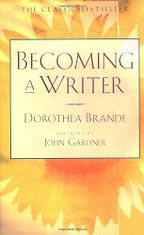
Becoming a Writer by Dorothea Brande
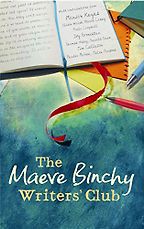
The Maeve Binchy Writers' Club by Maeve Binchy
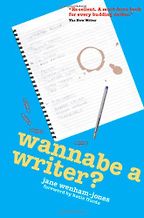
Wannabe a Writer? by Jane Wenham-Jones
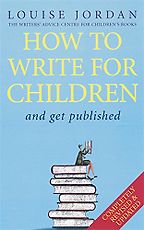
How to Write for Children by Louise Jordan
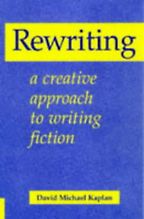
Rewriting by David Micheal Kaplan

1 Becoming a Writer by Dorothea Brande
2 the maeve binchy writers' club by maeve binchy, 3 wannabe a writer by jane wenham-jones, 4 how to write for children by louise jordan, 5 rewriting by david micheal kaplan.
S hall we start with the oldest book? Tell us about the “Dorothea Brande” .
When you’re a writer you’ve the feeling you’re someone who lives in your own world. Every now and then you come across someone who thinks the same way as you and it’s very illuminating. One of the things that really struck me about this book is what Brande says about writing and the morning, which is when I write best. I do a few things like getting my son up and sort of obvious practical stuff and then I’m not always able to sit and write as I’d like because I have other writing jobs, some of which are out of the home. But Dorothea describes this almost hypnotic state that writers are in during the morning. She says this is the time that many people write best. When you’re in this slightly trance-like state, if you have to answer a phone call or do something else first thing, it can take that away. Another of the chapters I like very much is about reading as a writer. She says you’ll often find that at first the only way to read as a writer is to go over everything twice. She says to first read as you did in the days when you had no responsibility to a book but to enjoy it. When you’ve finished she advises putting the book aside for a while and then writing a synopsis of what you’ve just read. Next say what you did and didn’t like. This will help you work out what you can do with your own book. So obviously not plagiarising but looking at the way that it’s constructed and seeing whether any scenes stand out in your mind. It’ll help you recognise some of your own weaknesses.
In the book Brande listed particular writers to read to improve your own writing. It was published in 1934. Would you add anyone to that list today? Perhaps someone you feel has helped you?
Let’s move on to the Binchy book then.
Sounds useful. Which book would you like to talk about next?
“Wannabe a Writer” by Jane Wenham-Jones. Jane’s a friend of mine and there’s a foreword by Katie Fforde, another friend. We all know each other through something called the Romantic Novelists’ Association where published authors give advice to those who are not published. So Jane is well-versed in sharing her knowledge. She talks about what it was like for her to become a writer and how it might be for other people and if people think they’ve got a book in them how to know if it’s a good book. She goes into good discipline, how to write when there’s no time, plotting, whether to plan or not, growing a novel in a folder, all this sort of stuff, so it’s very, very practical. She’s a great character Jane. She’s a novelist and a journalist. Her book also gives loads of tips from other authors, agents and publishers: where to start, how to finish, will anyone publish it and so on.
Would you agree it’s quite humorous, with all her drinking antics, talk of “writers’ bottom”…
Tell us about “How to Write for Children and Get Published” .
And now to your last book, “Rewriting: A Creative Approach to Writing Fiction”.
This is a text book really that’s been around for donkey’s years but it’s extremely useful and absolutely packed with good advice on things such as effective openings, the teaser and the grabber, saying: ‘You have to interest readers to propel them out of the opening.’
There’s a paragraph here I think is very important: ‘You have finished the first draft, it’s a mess you know but that’s ok and there it sits. Maybe you put it aside for a few days or weeks or months. Now you can approach it with fresher, more objective eyes.’ It is vital to do this, I heartily recommend it. While it is important not to immediately go through it again, I don’t believe you should leave it too long because you can lose your connection with it. Leaving some time before revising means you can get ideas for your work that you wouldn’t have had before.
It’s a very positive approach to revision because some people hate revision. Actually, I’ve learnt to love it.
December 14, 2012
Five Books aims to keep its book recommendations and interviews up to date. If you are the interviewee and would like to update your choice of books (or even just what you say about them) please email us at [email protected]
Support Five Books
Five Books interviews are expensive to produce. If you've enjoyed this interview, please support us by donating a small amount .
Sophie King
A journalist for more than 25 years, Jane Bidder writes fiction under the pen-name Sophie King. She is a frequent contributor to national British newspapers and magazines, including the Times and Good Housekeeping , and has authored a number of non-fiction books. She teaches creative writing at Oxford University, is writer-in-residence at a high-security prison and has recently published her fifth novel, The Wedding Party .
We ask experts to recommend the five best books in their subject and explain their selection in an interview.
This site has an archive of more than one thousand seven hundred interviews, or eight thousand book recommendations. We publish at least two new interviews per week.
Five Books participates in the Amazon Associate program and earns money from qualifying purchases.
© Five Books 2024
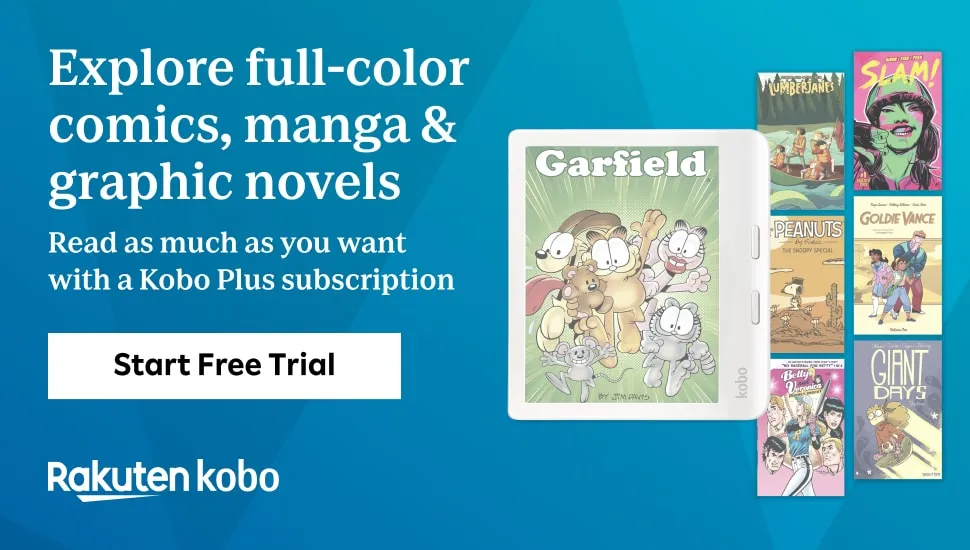
100 Must-Read, Best Books On Writing And The Writer’s Life
Nikki VanRy
Nikki VanRy is a proud resident of Arizona, where she gets to indulge her love of tacos, desert storms, and tank tops. She also writes for the Tucson Festival of Books, loves anything sci-fi/fantasy/historical, drinks too much chai, and will spend all day in bed reading thankyouverymuch. Follow her on Instagram @nikki.vanry .
View All posts by Nikki VanRy
If you’re a working or aspiring writer, y ou already likely know about the classic best books on writing–King’s On Writing, Strunk and White’s Elements of Style– but for a craft as varied and personal as writing, you’ll always benefit from learning from more voices, with more techniques.
That’s why this list is full of writers not only talking about the bare-bones craft of writing (and there’s plenty of fantastic advice there), but also how becoming a writer changed their lives and what role they believe writers play in an ever-changing world. From craft to writer’s lives, get ready to dig into 100 of the must-read, best books on writing for improving your own work.
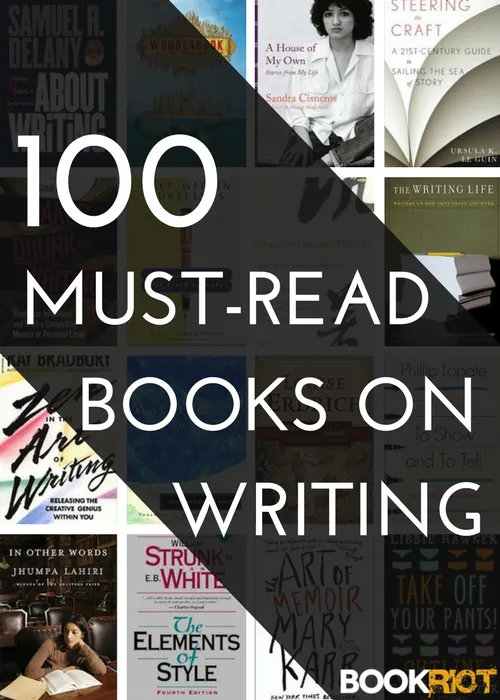
“Written with her trademark lyricism, in these signature pieces the acclaimed author of The House on Mango Street shares her transformative memories and reveals her artistic and intellectual influences. Poignant, honest, and deeply moving, A House of My Own is an exuberant celebration of a life lived to the fullest, from one of our most beloved writers.”
2. A Little Book on Form by Robert Hass
“Brilliantly synthesizes Hass’s formidable gifts as both a poet and a critic and reflects his profound education in the art of poetry. Starting with the exploration of a single line as the basic gesture of a poem, and moving into an examination of the essential expressive gestures that exist inside forms, Hass goes beyond approaching form as a set of traditional rules that precede composition, and instead offers penetrating insight into the true openness and instinctiveness of formal creation.”
3. A Personal Anthology by Jorge Luis Borges
“After almost a half a century of scrupulous devotion to his art, Jorge Luis Borges personally compiled this anthology of his work—short stories, essays, poems, and brief mordant ‘sketches,’ which, in Borges’s hands, take on the dimensions of a genre unique in modern letters. In this anthology, the author has put together those pieces on which he would like his reputation to rest; they are not arranged chronologically, but with an eye to their ‘sympathies and differences.'”
4. A Room of One’s Own by Virginia Woolf
“Virginia Woolf imagines that Shakespeare had a sister—a sister equal to Shakespeare in talent, and equal in genius, but whose legacy is radically different. In this classic essay, she takes on the establishment, using her gift of language to dissect the world around her and give voice to those who are without. Her message is a simple one: women must have a fixed income and a room of their own in order to have the freedom to create.”
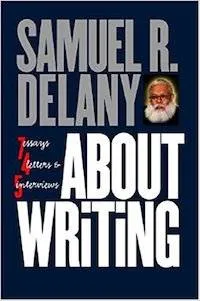
“Taking up specifics (When do flashbacks work, and when should you avoid them? How do you make characters both vivid and sympathetic?) and generalities (How are novels structured? How do writers establish serious literary reputations today?), Delany also examines the condition of the contemporary creative writer and how it differs from that of the writer in the years of Hemingway, Fitzgerald, and the high Modernists. Like a private writing tutorial, About Writing treats each topic with clarity and insight.”
6. The Anatomy of Story: 22 Steps to Becoming a Master Storyteller by John Truby
“Based on the lessons in his award-winning class, Great Screenwriting, The Anatomy of Story draws on a broad range of philosophy and mythology, offering fresh techniques and insightful anecdotes alongside Truby’s own unique approach to building an effective, multifaceted narrative.”
7. Art & Fear: Observations on the Perils (and Rewards) of Artmaking by David Bayles and Ted Orland
“Explores the way art gets made, the reasons it often doesn’t get made, and the nature of the difficulties that cause so many artists to give up along the way. The book’s co-authors, David Bayles and Ted Orland, are themselves both working artists, grappling daily with the problems of making art in the real world. Their insights and observations, drawn from personal experience, provide an incisive view into the world of art as it is experienced by artmakers themselves.”
8. The Art of Death by Edwidge Danticat
“At once a personal account of her mother dying from cancer and a deeply considered reckoning with the ways that other writers have approached death in their own work.”
9. The Art of Fiction: Notes on Craft for Young Writers by John Gardner
“Gardner’s lessons, exemplified with detailed excerpts from classic works of literature, sweep across a complete range of topics—from the nature of aesthetics to the shape of a refined sentence. Written with passion, precision, and a deep respect for the art of writing, Gardner’s book serves by turns as a critic, mentor, and friend. Anyone who has ever thought of taking the step from reader to writer should begin here.”
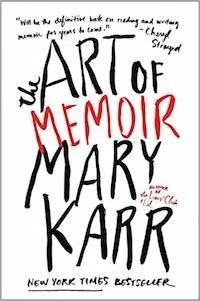
“Karr synthesizes her expertise as professor and therapy patient, writer and spiritual seeker, recovered alcoholic and ‘black belt sinner,’ providing a unique window into the mechanics and art of the form that is as irreverent, insightful, and entertaining as her own work in the genre.”
11. The Artist’s Way: A Spiritual Path to Higher Creativity by Julia Cameron
“The seminal book on the subject of creativity. An international bestseller, millions of readers have found it to be an invaluable guide to living the artist’s life. Still as vital today—or perhaps even more so—than it was when it was first published twenty five years ago, it is a powerfully provocative and inspiring work.”
12. Big Magic: Creative Living Beyond Fear by Elizabeth Gilbert
“With profound empathy and radiant generosity, Gilbert offers potent insights into the mysterious nature of inspiration. She asks us to embrace our curiosity and let go of needless suffering. She shows us how to tackle what we most love, and how to face down what we most fear. She discusses the attitudes, approaches, and habits we need in order to live our most creative lives.”
13. Bird by Bird: Some Instructions on Writing and Life by Anne Lamott
“Lamott’s miscellany of guidance and reflection should appeal to writers struggling with demons large and slight. Among the pearls she offers is to start small, as their father once advised her 10-year-old brother, who was agonizing over a book report on birds: ‘Just take it bird by bird.’ Lamott’s suggestion on the craft of fiction is down-to-earth: worry about the characters, not the plot. “
14. Black Milk: On the Conflicting Demands of Writing, Creativity, and Motherhood by Elif Shafak
“She intersperses her own experience with the lives of prominent authors such as Sylvia Plath, Virginia Woolf, Alice Walker, Ayn Rand, and Zelda Fitzgerald, Shafak looks for a solution to the inherent conflict between artistic creation and responsible parenting. With searing emotional honesty and an incisive examination of cultural mores within patriarchal societies, Shafak has rendered an important work about literature, motherhood, and spiritual well-being.”
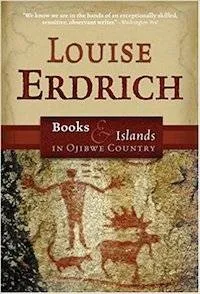
“Erdrich takes us on an illuminating tour through the terrain her ancestors have inhabited for centuries: the lakes and islands of southern Ontario. Summoning to life the Ojibwe’s sacred spirits and songs, their language and sorrows, she considers the many ways in which her tribe—whose name derives from the word ozhibii’ige, ‘to write'”—have influenced her. Her journey links ancient stone paintings with a magical island where a bookish recluse built an extraordinary library, and she reveals how both have transformed her.”
16. Bryson’s Dictionary of Troublesome Words: A Writer’s Guide to Getting It Right by Bill Bryson
“An essential guide to the wonderfully disordered thing that is the English language. With some one thousand entries that feature real-world examples of questionable usage from an international array of publications, and with a helpful glossary and guide to pronunciation, this precise, prescriptive, and–because it is written by Bill Bryson–often witty book belongs on the desk of every person who cares enough about the language not to maul or misuse or distort it.”
17. Bullies, Bastards and Bitches: How to Write the Bad Guys of Fiction by Jessica Morrell
“A truly memorable antagonist is not a one-dimensional super villain bent on world domination for no particular reason. Realistic, credible bad guys create essential story complications, personalize conflict, add immediacy to a story line, and force the protagonist to evolve.”
18. Crazy Brave: A Memoir by Joy Harjo
“In this transcendent memoir, grounded in tribal myth and ancestry, music and poetry, Joy Harjo, one of our leading Native American voices, details her journey to becoming a poet. Narrating the complexities of betrayal and love, Crazy Brave is a memoir about family and the breaking apart necessary in finding a voice.”
19. Eats, Shoots & Leaves: The Zero Tolerance Approach to Punctuation by Lynne Truss
“Former editor Lynne Truss, gravely concerned about our current grammatical state, boldly defends proper punctuation. She proclaims, in her delightfully urbane, witty, and very English way, that it is time to look at our commas and semicolons and see them as the wonderful and necessary things they are.”
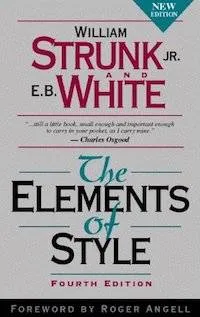
“You know the authors’ names. You recognize the title. You’ve probably used this book yourself. This is The Elements of Style , the classic style manual. This book’s unique tone, wit and charm have conveyed the principles of English style to millions of readers. Use the fourth edition of ‘the little book’ to make a big impact with writing.”
21. The Emotional Craft of Fiction: How to Write the Story Beneath the Surface by Donald Maass
“Veteran literary agent and expert fiction instructor Donald Maass shows you how to use story to provoke a visceral and emotional experience in readers. Readers can simply read a novel…or they can experience it. The Emotional Craft of Fiction shows you how to make that happen.”
22. Everybody Writes: Your Go-To Guide to Creating Ridiculously Good Content by Ann Handley
“A go-to guide to attracting and retaining customers through stellar online communication, because in our content-driven world, every one of us is, in fact, a writer. If you have a web site, you are a publisher. If you are on social media, you are in marketing. And that means that we are all relying on our words to carry our marketing messages. We are all writers.”
23. The First Five Pages: A Writer’s Guide to Staying Out of the Rejection Pile by Noah Lukeman
“With exercises at the end of each chapter, this invaluable reference will allow novelists, journalists, poets and screenwriters alike to improve their technique as they learn to eliminate even the most subtle mistakes that are cause for rejection. The First Five Pages will help writers at every stage take their art to a higher — and more successful — level.”
24. The Forest for the Trees: An Editor’s Advice to Writers by Betsy Lerner
“From blank page to first glowing (or gutting) review, Betsy Lerner is a knowing and sympathetic coach who helps writers discover how they can be more productive in the creative process and how they can better their odds of not only getting published, but getting published well.”
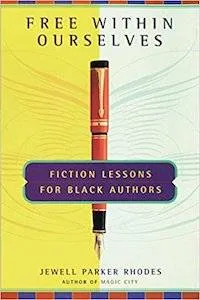
“ Free Within Ourselves is is meant to be a song of encouragement for African-American artists and visionaries. A step-by-step introduction to fictional technique, exploring story ideas, and charting one’s progress, as well as a resource guide for publishing fiction.”
26. Getting Into Character: Seven Secrets a Novelist Can Learn From Actors by Brandilyn Collins
“Want to bring characters to life on the page as vividly as fine actors do on the stage or screen? Getting Into Character will give you a whole new way of thinking about your writing. Drawing on the Method Acting theory that theater professionals have used for decades, this in-depth guide explains seven characterization techniques and adapts them for the novelist’s use.”
27. The Heart of a Woman by Maya Angelou
“In The Heart of a Woman , Maya Angelou leaves California with her son, Guy, to move to New York. There she enters the society and world of black artists and writers, reads her work at the Harlem Writers Guild, and begins to take part in the struggle of black Americans for their rightful place in the world.”
28. If You Want to Write by Brenda Ueland
“In this book, Ueland shares her philosophies on writing and life in general. She stresses the idea that ‘Everyone is talented, original, and has something important to say.’ Drawing heavily on the work and influence of William Blake, she suggests that writers should ‘Try to discover your true, honest, un-theoretical self.’ She sums up her book with 12 points to keep in mind while writing. Carl Sandburg called If You Want to Write the best book ever written on how to write.”
29. Immersion: A Writer’s Guide to Going Deep by Ted Conover
“Conover distills decades of knowledge into an accessible resource aimed at writers of all levels. He covers how to “get into” a community, how to conduct oneself once inside, and how to shape and structure the stories that emerge. Conover is also forthright about the ethics and consequences of immersion reporting, preparing writers for the surprises that often surface when their piece becomes public.”
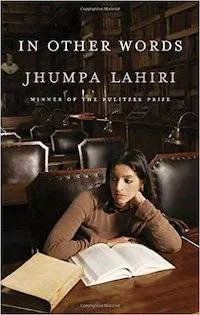
“On a post-college visit to Florence, Pulitzer Prize-winning author Jhumpa Lahiri fell in love with the Italian language. Twenty years later, seeking total immersion, she and her family relocated to Rome, where she began to read and write solely in her adopted tongue. A startling act of self-reflection, In Other Words is Lahiri’s meditation on the process of learning to express herself in another language—and the stunning journey of a writer seeking a new voice.”
31. In Search of Our Mothers’ Gardens: Womanist Prose by Alice Walker
“Alice Walker speaks out as a black woman, writer, mother, and feminist, in thirty-six pieces ranging from the personal to the political. Here are essays about Walker’s own work and that of other writers, accounts of the civil rights movement of the 1960s and the antinuclear movement of the 1980s, and a vivid, courageous memoir of a scarring childhood injury.”
32. It Was the Best of Sentences, It Was the Worst of Sentences: A Writer’s Guide to Crafting Killer Sentences by June Casagrande
“Great writing isn’t born, it’s built—sentence by sentence. But too many writers—and writing guides—overlook this most important unit. The result? Manuscripts that will never be published and writing careers that will never begin. So roll up your sleeves and prepare to craft one bold, effective sentence after another. Your readers will thank you.”
33. The Kick-Ass Writer: 1001 Ways to Write Great Fiction, Get Published, and Earn Your Audience by Chuck Wendig
“The journey to become a successful writer is long, fraught with peril, and filled with difficult questions: How do I write dialogue? How do I build suspense? What should I know about query letters? Where do I start? The best way to answer these questions is to ditch your uncertainty and transform yourself into a KICK-ASS writer.”
34. The Language of Fiction: A Writer’s Stylebook by Brian Shawver
“Grand themes and complex plots are just the beginning of a great piece of fiction. Mastering the nuts and bolts of grammar and prose mechanics is also an essential part of becoming a literary artist. This indispensable guide, created just for writers of fiction, will show you how to take your writing to the next level by exploring the finer points of language.”
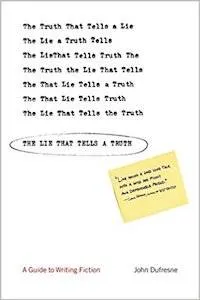
“Finally, a truly creative―and hilarious―guide to creative writing, full of encouragement and sound advice. Provocative and reassuring, nurturing and wise, The Lie That Tells a Truth is essential to writers in general, fiction writers in particular, beginning writers, serious writers, and anyone facing a blank page.”
36. The Magic Words: Writing Great Books for Children and Young Adults by Cheryl Klein
“Editor Cheryl B. Klein guides writers on an enjoyable and practical-minded voyage of their own, from developing a saleable premise for a novel to finding a dream agent. She delves deep into the major elements of fiction―intention, character, plot, and voice―while addressing important topics like diversity, world-building, and the differences between middle-grade and YA novels.”
37. Making a Good Script Great by Linda Seger
“Making a good script great is more than just a matter of putting a good idea on paper. It requires the working and reworking of that idea. This book takes you through the whole screenwriting process – from initial concept through final rewrite – providing specific methods that will help you craft tighter, stronger, and more saleable scripts.”
38. Memoirs by Pablo Neruda
“In his uniquely expressive prose, Neruda not only explains his views on poetry and describes the circumstances that inspired many of his poems, but he creates a revealing record of his life as a poet, a patriot, and one of the twentieth century’s true men of conscience.”
39. The Modern Library Writer’s Workshop: A Guide to the Craft of Fiction by Stephen Koch
“Stephen Koch, former chair of Columbia University’s graduate creative writing program, presents a unique guide to the craft of fiction. Along with his own lucid observations and commonsense techniques, he weaves together wisdom, advice, and inspiring commentary from some of our greatest writers.”
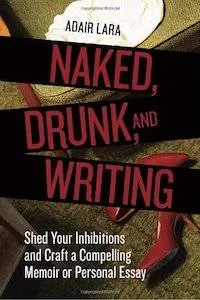
“Packed with insights and advice both practical (‘writing workshops you pay for are the best–it’s too easy to quit when you’ve made no investment’) and irreverent (‘apply Part A [butt] to Part B [chair]’). Naked, Drunk, and Writing is a must-have if you are an aspiring columnist, essayist, or memoirist—or just a writer who needs a bit of help in getting your story told.”
41. Negotiating with the Dead: A Writer on Writing by Margaret Atwood
“In this wise and irresistibly quotable book, one of the most intelligent writers working in English addresses the riddle of her art: why people pursue it, how they view their calling, and what bargains they make with their audience, both real and imagined. To these fascinating issues Booker Prize-winner Margaret Atwood brings a candid appraisal of her own experience as well as a breadth of reading that encompasses everything from Dante to Elmore Leonard.”
42. On Writing by Eudora Welty
“Eudora Welty was one of the twentieth century’s greatest literary figures. For as long as students have been studying her fiction as literature, writers have been looking to her to answer the profound questions of what makes a story good, a novel successful, a writer an artist.”
43. On Writing: A Memoir of the Craft by Stephen King
“Part memoir, part master class by one of the bestselling authors of all time, this superb volume is a revealing and practical view of the writer’s craft, comprising the basic tools of the trade every writer must have.”
44. On Writing Well: The Classic Guide to Writing Nonfiction by William Zinsser
“Whether you want to write about people or places, science and technology, business, sports, the arts or about yourself in the increasingly popular memoir genre, On Writing Well offers you fundamental principles as well as the insights of a distinguished writer and teacher.”
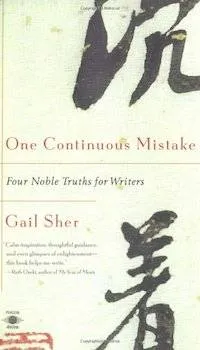
“Based on the Zen philosophy that we learn more from our failures than from our successes, One Continuous Mistake teaches a refreshing new method for writing as spiritual practice. Here she introduces a method of discipline that applies specific Zen practices to enhance and clarify creative work. She also discusses bodily postures that support writing, how to set up the appropriate writing regimen, and how to discover one’s own ‘learning personality.'”
46. Outlining Your Novel: Map Your Way to Success by K.M. Weiland
“Writers often look upon outlines with fear and trembling. But when properly understood and correctly wielded, the outline is one of the most powerful weapons in a writer’s arsenal.”
47. The Paris Review Interviews, Vols. 1-4 by The Paris Review
“For more than half a century, The Paris Review has conducted in-depth interviews with our leading novelists, poets, and playwrights. These revealing, revelatory self-portraits have come to be recognized as themselves classic works of literature, and an essential and definitive record of the writing life.”
48. The Poet’s Companion: A Guide to the Pleasures of Writing Poetry by Kim Addonizio and Dorianne Laux
“Presents brief essays on the elements of poetry, technique, and suggested subjects for writing, each followed by distinctive writing exercises. The ups and downs of writing life―including self-doubt and writer’s block―are here, along with tips about getting published and writing in the electronic age.”
49. The Poetry Home Repair Manual: Practical Advice for Beginning Poets by Ted Kooser
“Using examples from his own rich literary oeuvre and from the work of a number of successful contemporary poets, the author schools us in the critical relationship between poet and reader, which is fundamental to what Kooser believes is poetry’s ultimate purpose: to reach other people and touch their hearts.”
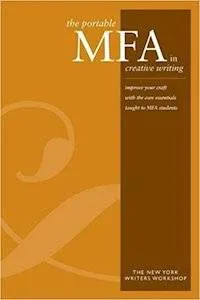
“Have you always wanted to get an MFA, but couldn’t because of the cost, time commitment, or admission requirements? Well now you can fulfill that dream without having to devote tons of money or time. The Portable MFA gives you all of the essential information you would learn in the MFA program in one book.”
51. Paula: A Memoir by Isabel Allende
“Irony and marvelous flights of fantasy mix with the icy reality of Paula’s deathly illness as Allende sketches childhood scenes in Chile and Lebanon; her uncle Salvatore Allende’s reign and ruin as Chilean president; her struggles to shake off or find love; and her metamorphosis into a writer.”
52. Pen on Fire: A Busy Woman’s Guide to Igniting the Writer Within by Barbara DeMarco-Barrett
“In her fifteen years of teaching, Barbara DeMarco-Barrett has found that the biggest stumbling block for aspiring writers (especially women) is not fear of the blank page but frustration with the lack of time. What woman doesn’t have too much to do and too little time? Finding an hour free of work, children, or obligations can seem impossible.”
53. Pixar Storytelling: Rules for Effective Storytelling Based on Pixar’s Greatest Films by Dean Movshovitz
“ Pixar Storytelling is about effective storytelling rules based on Pixar’s greatest films. The book consists of ten chapters, each of which explores an aspect of storytelling that Pixar excels at. Learn what Pixar’s core story ideas all have in common, how they create compelling, moving conflict and what makes their films’ resolutions so emotionally satisfying.”
54. Plot & Structure: Techniques and Exercises for Crafting a Plot That Grips Readers from Start to Finish by James Scott Bell
“How does plot influence story structure? What’s the difference between plotting for commercial and literary fiction? How do you revise a plot or structure that’s gone off course? With Write Great Fiction: Plot & Structure , you’ll discover the answers to these questions and more. Award-winning author James Scott Bell offers clear, concise information that will help you create a believable and memorable plot.”
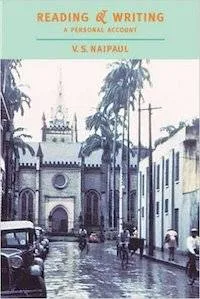
“In this essay of literary autobiography, V. S. Naipaul sifts through memories of his childhood in Trinidad, his university days in England, and his earliest attempts at writing, seeking the experiences of life and reading that shaped his imagination and his growth as a writer.”
56. Reading Like a Writer: A Guide for People Who Love Books and for Those Who Want to Write Them by Francine Prose
“Long before there were creative-writing workshops and degrees, how did aspiring writers learn to write? By reading the work of their predecessors and contemporaries, says Francine Prose. In Reading Like a Writer , Prose invites you to sit by her side and take a guided tour of the tools and the tricks of the masters.”
57. Romancing the Beat: Story Structure for Romance Novels (How to Write Kissing Books) by Gwen Hayes
“ Romancing the Beat is a recipe, not a rigid system. The beats don’t care if you plot or outline before you write, or if you pants your way through the drafts and do a ‘beat check’ when you’re revising. Pantsers and plotters are both welcome. So sit down, grab a cuppa, and let’s talk about kissing books.”
58. Save the Cat! The Last Book on Screenwriting You’ll Ever Need by Blake Snyder
“This ultimate insider’s guide reveals the secrets that none dare admit, told by a show biz veteran who’s proven that you can sell your script if you can save the cat!”
59. Scratch: Writers, Money, and the Art of Making a Living by Manjula Martin
“In the literary world, the debate around writing and commerce often begs us to take sides: either writers should be paid for everything they do or writers should just pay their dues and count themselves lucky to be published. It’s an endless, confusing, and often controversial conversation that, despite our bare-it-all culture, still remains taboo. In Scratch , Manjula Martin has gathered interviews and essays from established and rising authors to confront the age-old question: how do creative people make money?”
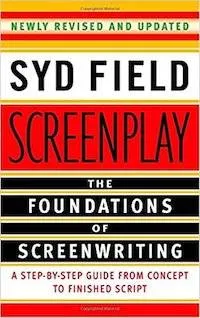
“From concept to character, from opening scene to finished script, here are easily understood guidelines to help aspiring screenwriters—from novices to practiced writers—hone their craft.”
61. Singing School: Learning to Write (And Read) Poetry by Studying with the Masters by Robert Pinsky
“Quick, joyful, and playfully astringent, with surprising comparisons and examples, this collection takes an unconventional approach to the art of poetry. Instead of rules, theories, or recipes, Singing School emphasizes ways to learn from great work: studying magnificent, monumentally enduring poems and how they are made— in terms borrowed from the ‘singing school’ of William Butler Yeats’s ‘Sailing to Byzantium.'”
62. The Situation and the Story: The Art of Personal Narrative by Vivian Gornick
“Taking us on a reading tour of some of the best memoirs and essays of the past hundred years, Gornick traces the changing idea of self that has dominated the century, and demonstrates the enduring truth-speaker to be found in the work of writers as diverse as Edmund Gosse, Joan Didion, Oscar Wilde, James Baldwin, or Marguerite Duras.”
63. Slay the Dragon: Writing Great Video Games by Robert Denton Bryant and Keith Giglio
“Writing for the multibillion-dollar video-game industry is unlike writing for any other medium. Slay the Dragon will help you understand the challenges and offer creative solutions to writing for a medium where the audience not only demands a great story, but to be a driving force within it.”
64. Something to Declare by Julia Alvarez
“From the internationally acclaimed author of the bestselling novels In the Time of the Butterflies and How the García Girls Lost Their Accents comes a rich and revealing work of nonfiction capturing the life and mind of an artist as she knits together the dual themes of coming to America and becoming a writer.”
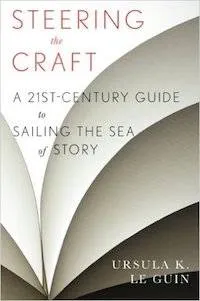
“This handbook is a short, deceptively simple guide to the craft of writing. Le Guin lays out ten chapters that address the most fundamental components of narrative, from the sound of language to sentence construction to point of view.”
66. Stein On Writing: A Master Editor of Some of the Most Successful Writers of Our Century Shares His Craft Techniques and Strategies by Sol Stein
“With examples from bestsellers as well as from students’ drafts, Stein offers detailed sections on characterization, dialogue, pacing, flashbacks, trimming away flabby wording, the so-called ‘triage’ method of revision, using the techniques of fiction to enliven nonfiction, and more.”
67. Story Genius: How to Use Brain Science to Go Beyond Outlining and Write a Riveting Novel by Lisa Cron
“Takes you, step-by-step, through the creation of a novel from the first glimmer of an idea, to a complete multilayered blueprint—including fully realized scenes—that evolves into a first draft with the authority, richness, and command of a riveting sixth or seventh draft.”
68. Story Trumps Structure: How to Write Unforgettable Fiction by Breaking the Rules by Steven James
“All too often, following the ‘rules’ of writing can constrict rather than inspire you. With Story Trumps Structure , you can shed those rules – about three-act structure, rising action, outlining, and more – to craft your most powerful, emotional, and gripping stories.”
69. The Storytelling Animal: How Stories Make Us Human by Jonathan Gottschall
“Humans live in landscapes of make-believe. We spin fantasies. We devour novels, films, and plays. Even sporting events and criminal trials unfold as narratives. Yet the world of story has long remained an undiscovered and unmapped country. Now Jonathan Gottschall offers the first unified theory of storytelling. He argues that stories help us navigate life’s complex social problems–just as flight simulators prepare pilots for difficult situations. Storytelling has evolved, like other behaviors, to ensure our survival.”
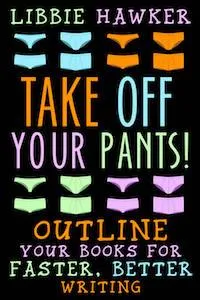
“When it comes to writing books, are you a ‘plotter’ or a ‘pantser’? Is one method really better than the other? In this instructional book, author Libbie Hawker explains the benefits and technique of planning a story before you begin to write.”
71. TED Talks Storytelling: 23 Storytelling Techniques from the Best TED Talks by Akash Karia
“Essentially, the best speakers on the TED stage were the ones who had mastered the art of storytelling. They had mastered how to craft and present their stories in a way that allowed them to share their message with the world without seeming like they were lecturing their audience.”
72. This Is The Story of a Happy Marriage by Ann Patchett
“Blending literature and memoir, Ann Patchett, author of State of Wonder, Run, and Bel Canto , examines her deepest commitments—to writing, family, friends, dogs, books, and her husband—creating a resonant portrait of a life in This is the Story of a Happy Marriage. “
73. This Year You Write Your Novel by Walter Mosley
“No more excuses. ‘Let the lawn get shaggy and the paint peel from the walls,’ bestselling novelist Walter Mosley advises. Anyone can write a novel now, and in this essential book of tips, practical advice, and wisdom, Walter Mosley promises that the writer-in-waiting can finish it in one year.”
74. Thrill Me: Essays on Fiction by Benjamin Percy
“In fifteen essays on the craft of fiction, Percy looks to disparate sources such as Jaws , Blood Meridian, and The Girl with the Dragon Tattoo to discover how contemporary writers engage issues of plot, suspense, momentum, and the speculative, as well as character, setting, and dialogue. An urgent and entertaining missive on craft, Thrill Me brims with Percy’s distinctive blend of anecdotes, advice, and close reading, all in the service of one dictum: Thrill the reader.”
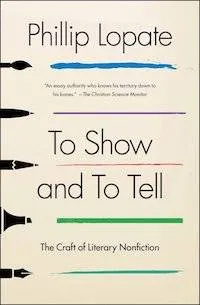
“Combining more than forty years of lessons from his storied career as a writer and professor, Lopate brings us this highly anticipated nuts-and-bolts guide to writing literary nonfiction. A phenomenal master class shaped by Lopate’s informative, accessible tone and immense gift for storytelling, To Show and To Tell reads like a long walk with a favorite professor—refreshing, insightful, and encouraging in often unexpected ways.”
76. The Tough Guide to Fantasyland: The Essential Guide to Fantasy Travel by Diana Wynne Jones
“Imagine that all fantasy novels—the ones featuring dragons, knights, wizards, and magic—are set in the same place. That place is called Fantasyland. The Tough Guide to Fantasyland is your travel guide, a handbook to everything you might find: Evil, the Dark Lord, Stew, Boots (but not Socks), and what passes for Economics and Ecology. Both a hilarious send-up of the cliches of the genre and an indispensable guide for writers.”
77. Unless It Moves the Human Heart: The Craft and Art of Writing by Roger Rosenblatt
“The revered novelist, essayist, playwright, and respected writing teacher offers a guidebook for aspiring authors, a memoir, and an impassioned argument for the necessity of writing in our world.”
78. Upstream by Mary Oliver
“Throughout this collection, Oliver positions not just herself upstream but us as well as she encourages us all to keep moving, to lose ourselves in the awe of the unknown, and to give power and time to the creative and whimsical urges that live within us.”
79. Video Game Storytelling: What Every Developer Needs to Know about Narrative Techniques by Evan Skolnick
“Game writer and producer Evan Skolnick provides a comprehensive yet easy-to-follow guide to storytelling basics and how they can be applied at every stage of the development process—by all members of the team.”
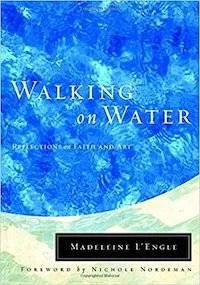
“In this classic book, Madeleine L’Engle addresses the questions, What makes art Christian? What does it mean to be a Christian artist? What is the relationship between faith and art? Through L’Engle’s beautiful and insightful essay, readers will find themselves called to what the author views as the prime tasks of an artist: to listen, to remain aware, and to respond to creation through one’s own art.”
81. The Way of the Writer: Reflections on the Art and Craft of Storytelling by Charles Johnson
“Johnson shares his lessons and exercises from the classroom, starting with word choice, sentence structure, and narrative voice, and delving into the mechanics of scene, dialogue, plot and storytelling before exploring the larger questions at stake for the serious writer. What separates literature from industrial fiction? What lies at the heart of the creative impulse? How does one navigate the literary world? And how are philosophy and fiction concomitant?”
82. What I Talk About When I Talk About Running by Haruki Murakami
“While simply training for New York City Marathon would be enough for most people, Haruki Murakami’s decided to write about it as well. The result is a beautiful memoir about his intertwined obsessions with running and writing, full of vivid memories and insights, including the eureka moment when he decided to become a writer.”
83. What Moves at the Margin by Toni Morrison
“Collects three decades of Toni Morrison’s writings about her work, her life, literature, and American society. The works included in this volume range from 1971, when Morrison was a new editor at Random House and a beginning novelist, to 2002 when she was a professor at Princeton University and Nobel Laureate. These works provide a unique glimpse into Morrison’s viewpoint as an observer of the world, the arts, and the changing landscape of American culture.”
84. Where the Past Begins: A Writer’s Memoir by Amy Tan
“By delving into vivid memories of her traumatic childhood, confessions of self-doubt in her journals, and heartbreaking letters to and from her mother, she gives evidence to all that made it both unlikely and inevitable that she would become a writer. Through spontaneous storytelling, she shows how a fluid fictional state of mind unleashed near-forgotten memories that became the emotional nucleus of her novels.”
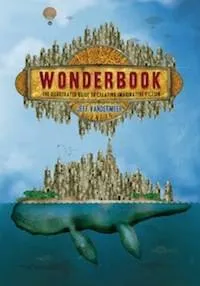
“This all-new definitive guide to writing imaginative fiction takes a completely novel approach and fully exploits the visual nature of fantasy through original drawings, maps, renderings, and exercises to create a spectacularly beautiful and inspiring object.”
86. Woolgathering by Patti Smith
“A great book about becoming an artist, Woolgathering tells of a youngster finding herself as she learns the noble vocation of woolgathering, ‘a worthy calling that seemed a good job for me.’ She discovers―often at night, often in nature―the pleasures of rescuing ‘a fleeting thought.’ Deeply moving, Woolgathering calls up our own memories, as the child ‘glimpses and gleans, piecing together a crazy quilt of truths.'”
87. Words for Pictures: The Art and Business of Writing Comics and Graphic Novels by Brian Michael Bendis
“One of the most popular writers in modern comics, Brian Michael Bendis reveals the tools and techniques he and other top creators use to create some of the most popular comic book and graphic novel stories of all time.”
88. Write Naked: A Bestseller’s Secrets to Writing Romance & Navigating the Path to Success by Jennifer Probst
“Learn how to transform your passion for writing into a career. New York Times best-selling author Jennifer Probst reveals her pathway to success, from struggling as a new writer to signing a seven-figure deal. Write Naked intermingles personal essays on craft with down-to-earth advice on writing romance in the digital age.”
89. Write Your Novel in a Month: How to Complete a First Draft in 30 Days and What to Do Next by Jeff Gerke
“Author and instructor Jeff Gerke has created the perfect tool to show you how to prepare yourself to write your first draft in as little as 30 days. With Jeff’s help, you will learn how to organize your ideas, create dynamic stories, develop believable characters, and flesh out the idea narrative for your novel–and not just for the rapid-fire first draft.”
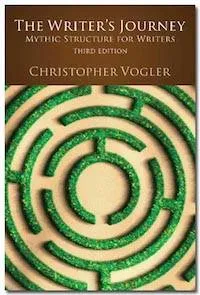
“Explores the powerful relationship between mythology and storytelling in a clear, concise style that’s made it required reading for movie executives, screenwriters, playwrights, scholars, and fans of pop culture all over the world.”
91. Writer’s Market 2018: The Most Trusted Guide to Getting Published by Robert Lee Brewer
“Want to get published and paid for your writing? Let Writer’s Market guide you through the process with thousands of publishing opportunities for writers, including listings for book publishers, consumer and trade magazines, contests and awards, and literary agents. These listings feature contact and submission information to help writers get their work published.”
92. Writing Down the Bones: Freeing the Writer Within by Natalie Goldberg
“For more than thirty years Natalie Goldberg has been challenging and cheering on writers with her books and workshops. In her groundbreaking first book, she brings together Zen meditation and writing in a new way. Writing practice, as she calls it, is no different from other forms of Zen practice—’it is backed by two thousand years of studying the mind.'”
93. Writing Hard Stories: Celebrated Memoirists Who Shaped Art from Trauma by Melanie Brooks
“What does it take to write an honest memoir? And what happens to us when we embark on that journey? Melanie Brooks sought guidance from the memoirists who most moved her to answer these questions. Called an essential book for creative writers by Poets & Writers, Writing Hard Stories is a unique compilation of authentic stories about the death of a partner, parent, or child; about violence and shunning; and about the process of writing.”
94. The Writing Life by Annie Dillard
“Slender though it is, The Writing Life richly conveys the torturous, tortuous, and in rare moments, transcendent existence of the writer. Amid moving accounts of her own writing (and life) experiences, Dillard also manages to impart wisdom to other writers, wisdom having to do with passion and commitment and taking the work seriously.”
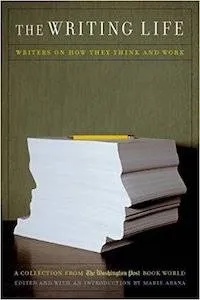
“Culled from ten years of the distinguished Washington Post column of the same name, The Writing Life highlights an eclectic group of luminaries who have wildly varied stories to tell, but who share this singularly beguiling career. Here are their pleasures as well as their peeves; revelations of their deepest fears; dramas of triumphs and failures; insights into the demands and rewards.”
96. Writing Magic: Creating Stories That Fly by Gail Caron Levine
“Gail Carson Levine shows how you can get terrific ideas for stories, invent great beginnings and endings, write sparkling dialogue, develop memorable characters—and much, much more. She advises you about what to do when you feel stuck—and how to use helpful criticism. Best of all, she offers writing exercises that will set your imagination on fire.”
97. Writing Tools: 55 Essential Strategies for Every Writer by Roy Peter Clark
“Ten years ago, Roy Peter Clark, America’s most influential writing teacher, whittled down almost thirty years of experience in journalism, writing, and teaching into a series of fifty short essays on different aspects of writing. In the past decade, Writing Tools has become a classic guidebook for novices and experts alike and remains one of the best loved books on writing available.”
98. Year of Yes: How to Dance It Out, Stand In the Sun and Be Your Own Person by Shonda Rhimes
“This poignant, intimate, and hilarious memoir explores Shonda’s life before her Year of Yes —from her nerdy, book-loving childhood to her devotion to creating television characters who reflected the world she saw around her. The book chronicles her life after her Year of Yes had begun—when Shonda forced herself out of the house and onto the stage; when she learned to explore, empower, applaud, and love her truest self. Yes.”
99. Your Creative Writing Masterclass by Jergen Wolff
“If you dream of being a writer, why not learn from the best? In Your Creative Writing Masterclass you’ll find ideas, techniques and encouragement from the most admired and respected contemporary and classic authors, including Charles Dickens, Jane Austen and Anton Chekhov.”
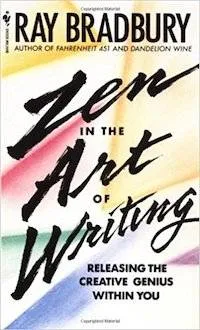
“Part memoir, part philosophical guide, the essays in this book teach the joy of writing. Rather than focusing on the mechanics of putting words on paper, Bradbury’s zen is found in the celebration of storytelling that drove him to write every day. Imparting lessons he has learned over the course of his exuberant career, Bradbury inspires with his infectious enthusiasm.”
Writing is a big messy topic, so obviously I’ll have missed some of your favorite and best books on writing. Make sure to hit the comments to talk about your favorite books about the writing life and craft. Find more of our posts on the writing life here .

You Might Also Like


Best Books on Creative Writing

Written by Eira Edwards
21 january 2024, creative writing.
This post may include affiliate links. That means we may earn a commission if you buy through recommended links. See our full disclaimer policy .
Whether you’re an experienced writer or a beginner, there’s always something new to discover about creativity and storytelling. That’s where books on creative writing come in.
Reading books about creative writing is a great way to broaden your knowledge and get insights into both the technical and philosophical sides of story. Plus, they can motivate, inspire and ignite your imagination.
Here, I’ve curated a list of the best creative writing books that are sure to take your craft to the next level. Covering a diverse range of approaches, from practical guidelines to personal anecdotes from revered authors, these literary gems are clear creativity winners. Let’s dive in!
On Writing: A Memoir of the Craft
By stephen king.
Blending autobiography and writing guide, this book delves into King’s writing journey, revealing his challenges, inspirations and techniques. From focusing on the importance of reading to the art of crafting compelling narratives, ‘On Writing’ is a must-read for both King fans and writers looking to improve their craft.

By Elizabeth Gilbert
This delightful book is filled with heartfelt anecdotes and personal insights. Gilbert unpacks the concept of creativity throughout, outlining the attitudes, approaches and habits we need to live our most creative lives. The book presents a concept that I still think about regularly: ideas are living entities and choose you to write them.

zen in the art of Writing
By ray bradbury.
If you’re an aspiring writer, you’d have heard about the legendary author, Ray Bradbury. Did you know he was a student of Zen? Bradbury found inspiration in Zen philosophy and often incorporated it into his writing, like being present and trusting your intuition. This book is not just about writing, it’s also about unleashing your creativity and imagination
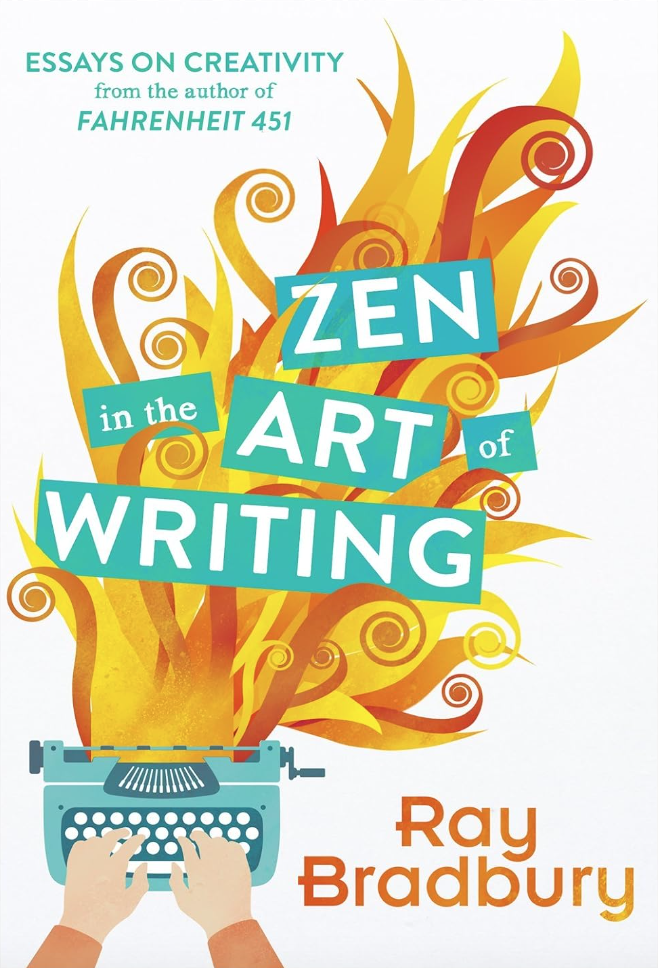
Into The Woods
By john yorke.
Yorke explores the creative brilliance behind our favourite fairy tales and how the storytelling structure of these timeless tales can be applied to modern-day writing. The book is a treasure trove of creative insights and an essential read for writers, covering archetypes, character arcs, setting and plot twists.

By Jeff VanderMeer
This remarkable book is overflowing with creativity and will have you bursting with inspiration in no time. Whether you’re a seasoned professional or a beginner in the world of writing, this guide will take you on an artistic journey filled with colourful graphics, practical advice and imaginative storytelling.

The Artist's Way
By julia cameron.
Looking to unleash your creative potential? Or have you been stuck in a creative rut, unable to come up with new ideas? If so, you might want to pick up this iconic book. It’s helped artists tap into their inner creativity and find their unique voice, featuring exercises to overcome creative blocks and morning pages to clear your mind.

Writing Down the Bones
By natalie goldberg.
This book teaches you how to unleash your creativity and let your words flow onto paper, as well as how to overcome writer’s block, find your voice and hone your skills. It will inspire you to cultivate a lifelong habit of writing and let you discover your unique voice.

Bird by Bird
By anne lamott.
This is an excellent resource for any writer looking to enhance their creativity. Lamott encourages writers to focus on writing the first draft and not worry about perfection, take time to observe and embrace one’s unique voice. Ultimately, the book helps you discover the joys of creativity and improve your craft.

The Art of Fiction
By john gardner.
In The Art of Fiction, Gardner has so much to offer writers, from his creative writing exercises to his advice on character development, authenticity and narration. Gardner encourages you to take risks and explore the many ways that imagination can influence storytelling.

Steering the Craft
By ursula k. le guin.
Discover how to improve your writing skills by learning from the masterful techniques of one of the greatest science fiction writers, Ursula K. Le Guin. Focusing on structure, language and dialogue, Le Guin offers practical exercises and advice to help writers of all levels achieve their goals.

The Emotion Thesaurus
By becca puglisi and angela ackerman.
Want something to spark your creativity and accurately portray your characters’ emotions ? Good news, there’s a tool that can help: The Emotion Thesaurus. This book provides writers with a comprehensive guide of emotions, body language and sensory cues to help master the art of emotion and bring your characters to life.

Characters and Viewpoint
By orson scott car.
Orson Scott Card, renowned sci-fi and fantasy writer, approaches characters and viewpoints in an interesting way. Rather than building his characters from scratch, Card takes existing archetypes and gives them a unique twist to make them memorable. There’s lots to learn from Orson Scott Card’s creativity. Why not apply it to your own writing?

The Writer's Journey
By christopher vogler.
This book offers a comprehensive guide for writers looking to tap into their creativity and create stories that are both engaging and impactful. One of Vogler’s central ideas is how every story is essentially a hero’s journey, and he outlines the fundamental elements of a successful narrative. It’s an ideal book for anyone who wants to create a compelling story (that would be all of us, right?).

The Anatomy of Story
By john truby.
This book has helped many writers understand the architecture of a great story. From creating multi-dimensional characters to developing a plot, Truby helps you to enhance your creativity and write better stories.

Story Genius
By lisa cron.
This book is perfect for writers looking to unlock their creative potential and approach writing in a whole new way. Cron’s approach to writing centres around the idea that our brains are wired for storytelling. So if you’re a writer struggling to put pen to paper, give Story Genius a read and see how it can transform your approach to writing.

Written By Eira Edwards
Eira is a writer and editor from the South of England with over five years of experience as a Content Manager, helping clients perfect their copy.
She has a degree in English Literature and Language, which she loves putting to work by working closely with fiction authors.
When she’s not working on manuscripts, you can find her in the woods with her partner and dog, or curling up with a good book.
Also on the Blog
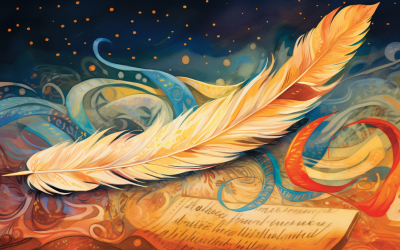
Descriptive Adjectives
by Eira Edwards | Feb 9, 2024
Sometimes your writing needs a little extra sparkle, and descriptive adjectives can help with that. When used...

Best Enemies to Lovers Books
by Eira Edwards | Feb 7, 2024
Are you a sucker for a good enemies-to-lovers book? If you're looking for your next read, look no further! This...

10 Creative Writing Exercises to Progress Your Story
by Eira Edwards | Jan 17, 2024
Whether you're a plotter or a pantser, we all know what it feels like to lose motivation. Or perhaps you're a seasoned...
Cookies on Beyond the Chapter. We use cookies to provide visitors with the best possible experience on our website. These include functionality cookies and targeting cookies, which may be used in our marketing efforts. This allows us to personalise content, enhance site navigation and analyse site usage. By clicking “Accept All” you consent to our use of cookies. For more details, read our Cookie Policy and Privacy Statement.
- Work + Money
- Relationships
- Slow Living
The Best Books On Writing—From A Writer

I can’t tell you how many books and blogs I’ve read on writing and the creative process. Since knowing I wanted to pursue writing more seriously in my 20s, I’ve devoured (okay, skimmed) too many books that go over all the ins and outs of how to write a story—from craft and story structure to the best writing platforms and how to revise your drafts. Some advice says to write every day no matter what; others recommend to take breaks. Some authors suggest fancy writing software; others swear by pen and paper. At a certain pont, all the advice blurs together and it’s impossible to retain let alone practice every single recommendation. Eventually, you have to figure out what works best for you and—yes, the hardest part—sit down and write your story.
That said, there are a few wonderful writing books out there that I swear by for my own practice. While this list isn’t comprehensive, it includes a few gems I believe are fresh, unique, and short or small enough to carry with you. Most importantly, these books are more concerned with examining the writer’s life than the writing itself (something I’ve come to learn must be figured out at the individual level). Hopefully they offer you a bit of wisdom as well.
For more writing recommendations, check out these 99 creative writing prompts and these writing classes you can take online .
1. The Writing Life by Annie Dillard
This is one of my all-time favorite essay collections for creative inspiration or for whenever I feel like I’m in a writing rut. I first read it during grad school in a single afternoon (it’s only 111 pages) and was captivated by Dillard’s ability to articulate the joys and pains of life as a working writer. Each micro essay includes metaphors, anecdotes from her experiences, and probing questions for the reader to examine their own writing life. It’s a quick and breathless read, but one that stays with you forever. Here is one of my favorite passages:
“Who will teach me to write? A reader wanted to know.
The page, the page, the eternal blankness, the blankness of eternity which you cover slowly, affirming time’s scrawl as a right and your daring as necessity; the page, which you cover woodenly, ruining it, but asserting your freedom and power to act, acknowledging that you ruin everything you touch but nevertheless, because acting is better than being here in mere opacity…” (Dillard, 58-59)
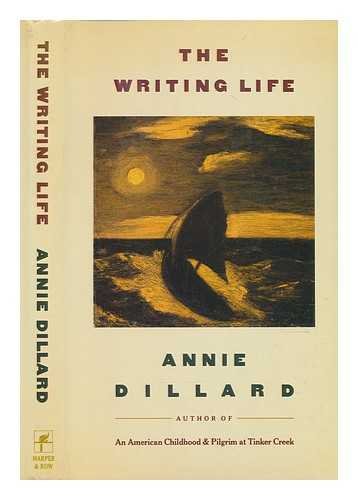
2. My Trade Is Mystery by Carl Phillips
This little writing book is such a gem! I first started reading it this past winter and had to force myself to slow down so that I could savor every single word from the accomplished writer, poet, and teacher Carl Phillips. The book jacket describes this as the “ultimate companion for writers at every stage of their journey,” and it truly is such. It’s also a fresh take on writing advice in a market saturated by how-to writing books and instruction manuals. Here is a passage I continue to revisit:
“To write poems that make a meaningful difference, that do the transformative work of showing readers (and myself as the writer) the world in a new way—this is difficult, yes. But the chance for surprise makes the work inviting. Difficulty, surprise—maybe that’s all a career comes down to. Difficulty meets surprise, and—without having thought to choose to—they mate for life.” (Phillips, 27)
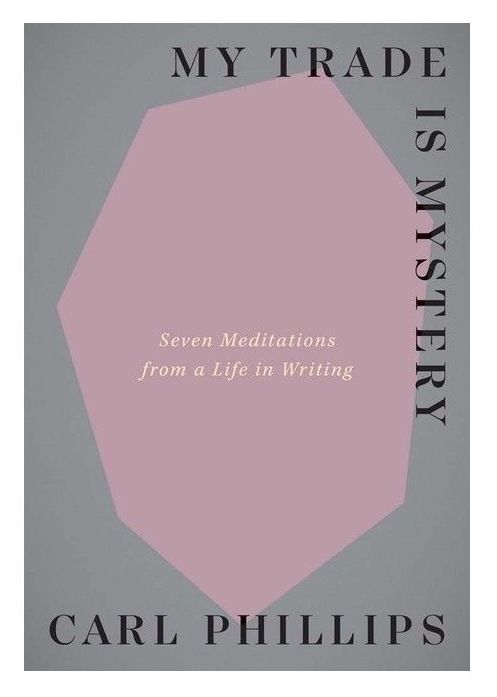
3. Body Work by Melissa Febos
Melissa Febos has long been one of my favorite authors and essayists. Her work is raw and profoundly human. When I learned she was publishing her own book on writing, I couldn’t wait to get my hands on it, knowing it would offer a fresh and intimate take on personal narrative. It has, of course, exceeded my expectations and become a regular companion to my own writing practice. In a little more than 150 pages, Febos transforms the way writers consider the page and how we use it to explore our truest and most personal stories—which often include desires and physical bodies. Author Alexander Chee calls it “one of the most liberating books on the subject of writing.” I suggest every writer snag a copy to keep on their desk.
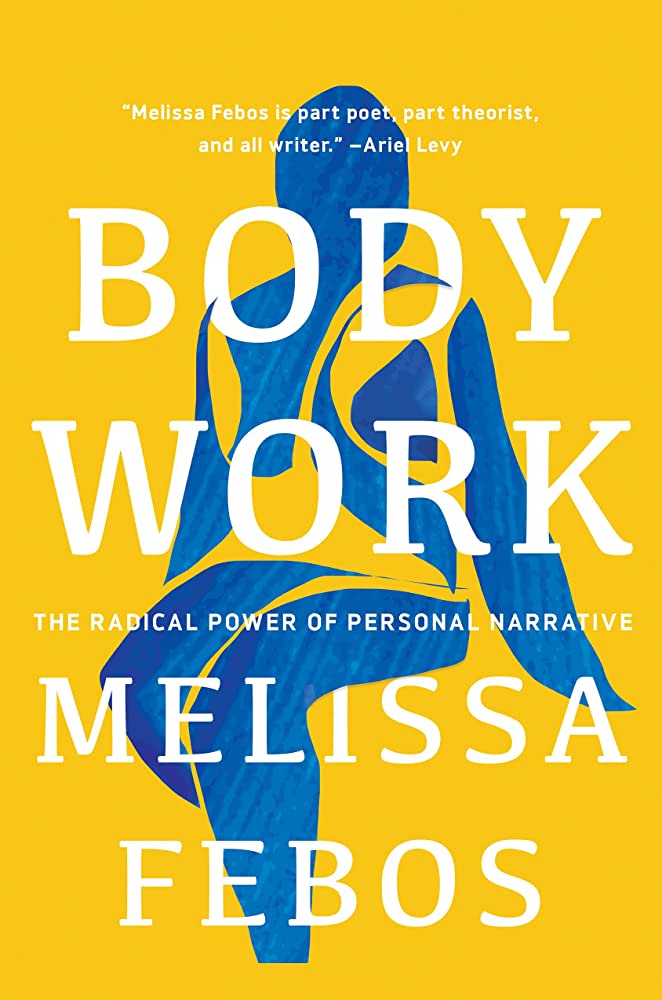
4. Bird by Bird by Anne Lamott
Is a writing book roundup complete if it doesn’t include Bird by Bird? While an older book on the market (first published in 1994), there’s a reason Anne Lamott’s work continues to be praised and quoted by writers everywhere—my own copy is dog-eared, weathered, and hardly decipherable from highlighter and margin notes.
Lamott has long been known for her honest writing and ability to put things plainly for readers, and she does just that in this instruction manual, too. If I’ve taken anything from my reading (and re-readings) of her words, it’s that there is nothing more sacred than finding your inner voice and allowing it to live on the page. “Train yourself to hear that small inner voice,” she writes. (113, Lamott)
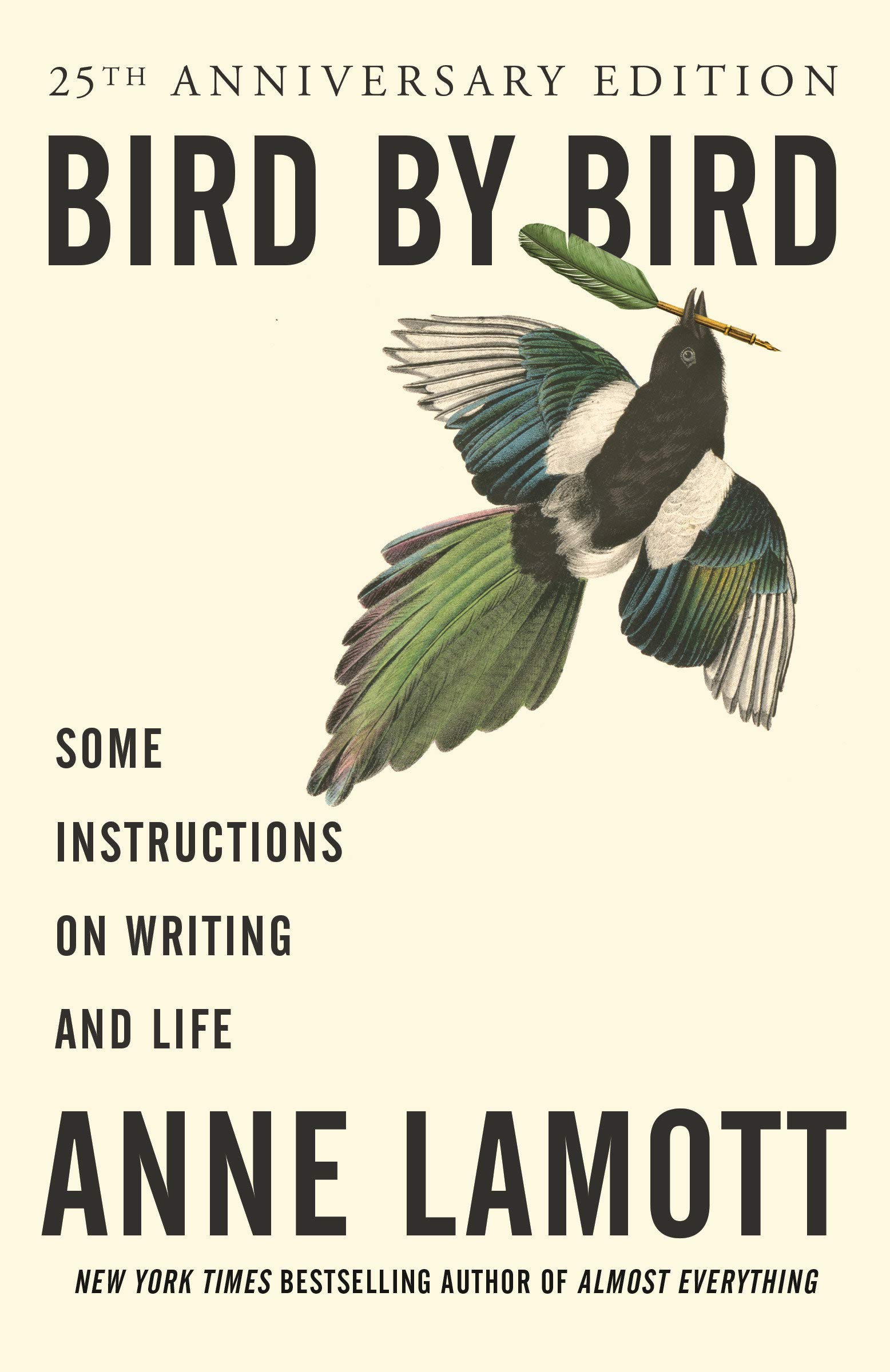
5. Before and After the Book Deal by Courtney Maum
If you’re writing a book (or want to), this is essentially the bible you’ll want to memorize and reference again and again. Courtney Maum offers insider advice from the book publishing world, whether you’re trying to finish your novel, find an agent, or navigate the terrifying waters—and jargon—of the pub industry. I reference my copy weekly, if not more, and recommend it to anyone who tells me they are writing a book. You can also subscribe to Maum’s substack newsletter for regular writing advice delivered to your inbox.
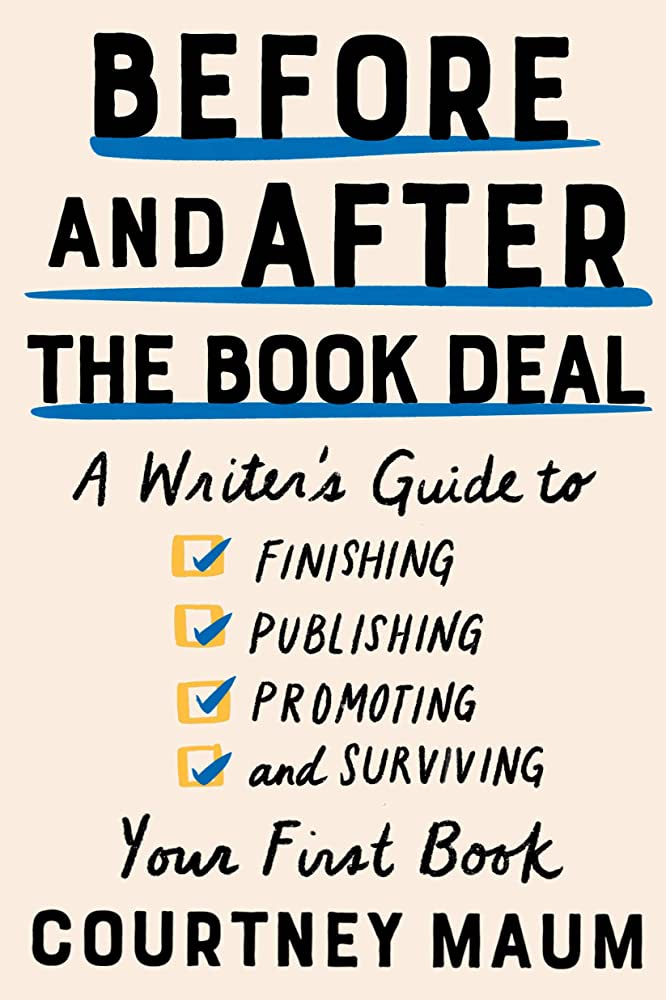
Forthcoming: How We Do It by Jericho Brown and Darlene Taylor
This one isn’t out in the world until summer, so while I can’t give my personal recommendation just yet, I can say I think it’s going to be very, very good . It includes experiences and expertise from more than 30 acclaimed writers and celebrates the Black creative spirit. Preorders are super important for authors and the success of books, so consider ordering a copy before pub date to express your interest. (Plus, it’s always fun to get a book in the mail that you purchased months ago!)
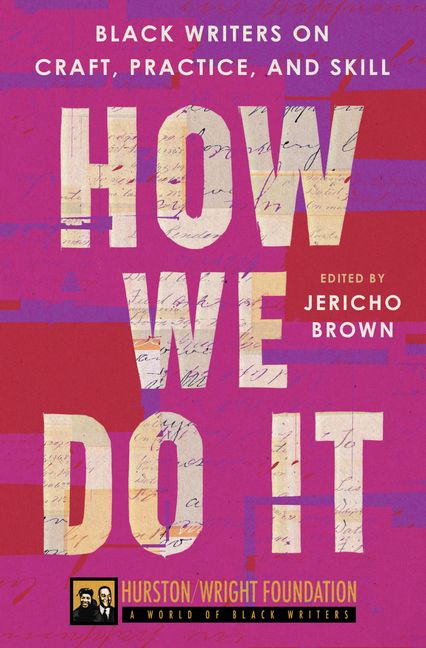
Kayti Christian (she/her) is the Managing Editor at The Good Trade. She has a Master’s in Nonfiction Writing from the University of London and is the creator of Feelings Not Aside , a newsletter for sensitive people.
RELATED READING

9 Books By Black Authors Our Editor Loves

99 Inexpensive Self-Care Ideas For Your New Year

99 Ways To Creatively Recharge
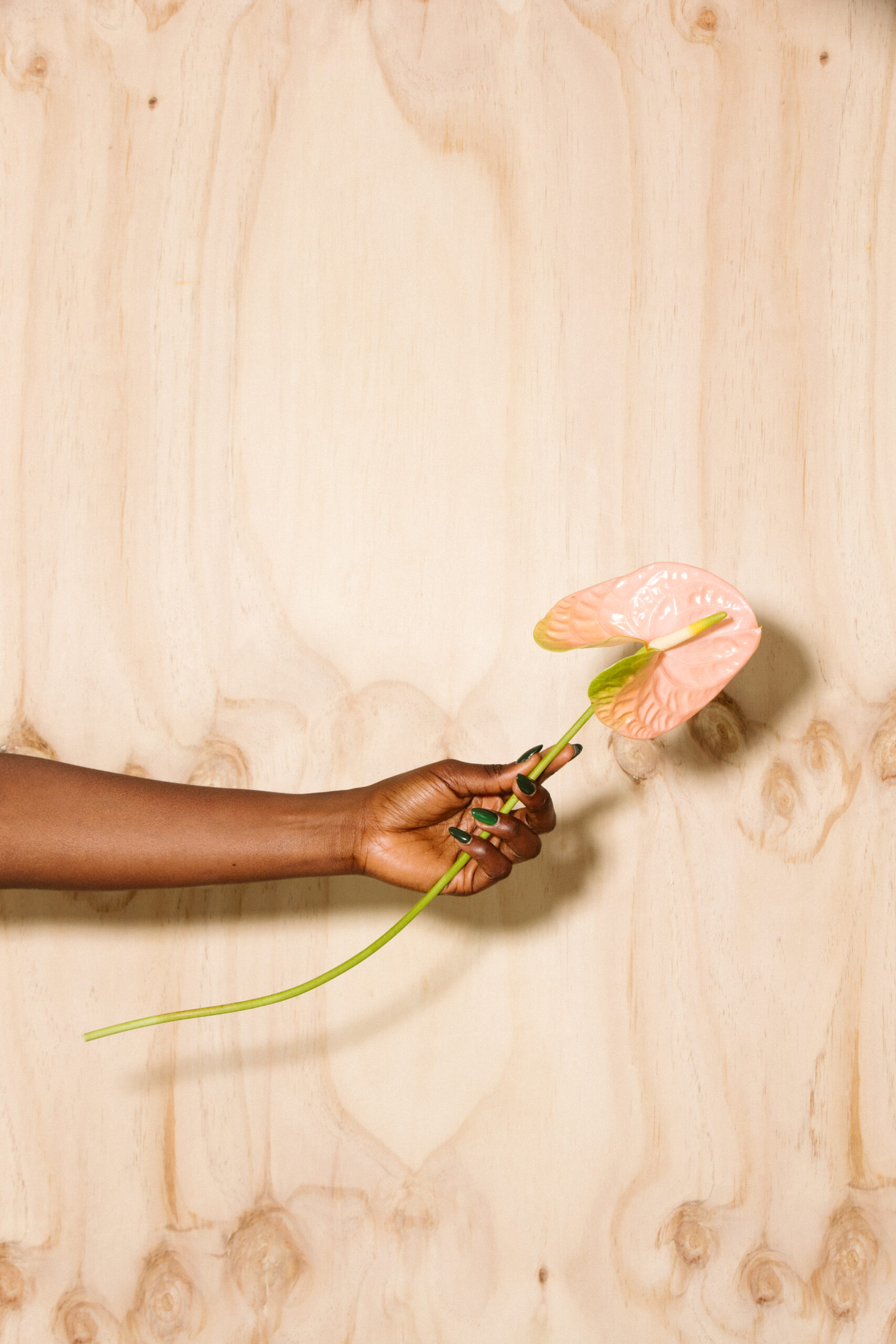
A Case For Giving Your Creative Ideas Away
- International edition
- Australia edition
- Europe edition
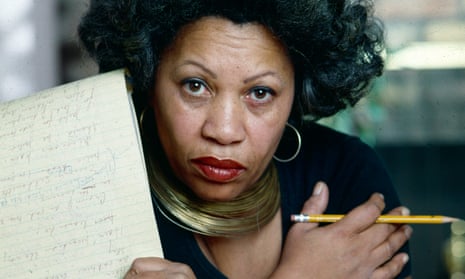
Top 10 books about creative writing
From linguistics to essays by Zadie Smith and Toni Morrison, poet Anthony Anaxagorou recommends some ‘lateral’ ways in to a demanding craft
T he poet Rita Dove was once asked what makes poetry successful. She went on to illuminate three key areas: First, the heart of the writer; the things they wish to say – their politics and overarching sensibilities. Second, their tools: how they work language to organise and position words. And the third, the love a person must have for books: “To read, read, read.”
When I started mapping out How to Write It , I wanted to focus on the aspects of writing development that took in both theoretical and interpersonal aspects. No writer lives in a vacuum, their job is an endless task of paying attention.
How do I get myself an agent? What’s the best way to approach a publisher? Should I self-publish? There is never one way to assuage the concerns of those looking to make a career out of writing. Many labour tirelessly for decades on manuscripts that never make it to print. The UK on average publishes around 185,000 new titles per year, ranking us the third largest publishing market in the world, yet the number of aspiring writers is substantially greater.
Writers writing about writing can become a supercilious endeavour; I’m more interested in the process of making work and the writer’s perspectives that substantiate the framework.
There’s no single authority, anything is possible. All that’s required are some words and an idea – which makes the art of writing enticing but also difficult and daunting. The books listed below, diverse in their central arguments and genres, guide us towards more interesting and lateral ways to think about what we want to say, and ultimately, how we choose to say it.
1. The Hatred of Poetry by Ben Lerner An intellectual meditation on the cultural function of poetry. Less idealistic than other poetry criticism, Lerner puts forward a richly layered case for the reasons writers and readers alike turn to poetry, probing into why it’s often misconceived as elitist or tedious, and asks that we reconsider the value we place on the art form today.
2. Find Your Voice by Angie Thomas One of the hardest things about creative writing is developing a voice and not compromising your vision for the sake of public appeal. Thomas offers sharp advice to those wrestling with novels or Young Adult fiction. She writes with appealing honesty, taking in everything from writer’s block to deciding what a final draft should look like. The book also comes interspersed with prompts and writing exercises alongside other tips and suggestions to help airlift writers out of the mud.
3. Linguistics: Why It Matters by Geoffrey K Pullum If language is in a constant state of flux, and rules governing sentence construction, meaning and logic are always at a point of contention, what then can conventional modes of language and linguistics tell us about ourselves, our cultures and our relationship to the material world? Pullum addresses a number of philosophical questions through the scientific study of human languages – their grammars, clauses and limitations. An approachable, fascinating resource for those interested in the mechanics of words.
4. Madness, Rack, and Honey by Mary Ruefle The collected lectures of poet and professor Mary Ruefle present us with an erudite inquiry into some of the major aspects of a writer’s mind and craft. Ruefle possesses an uncanny ability to excavate broad and complex subjects with such unforced and original lucidity that you come away feeling as if you’ve acquired an entirely new perspective from only a few pages. Themes range from sentimentality in poetry, to fear, beginnings and – a topic she returns to throughout the book – wonder. “A poem is a finished work of the mind, it is not the work of a finished mind.”

5. Feel Free by Zadie Smith These astute and topical essays dating from 2010 to 2017 demonstrate Smith’s forensic ability to navigate and unpack everything from Brexit to Justin Bieber. Dissecting high philosophical works then bringing the focus back on to her own practice as a fiction writer, her essay The I Who Is Not Me sees Smith extrapolate on how autobiography shapes novel writing, and elucidates her approach to thinking around British society’s tenuous and often binary perspectives on race, class and ethnicity.
6. Threads by Sandeep Parmar, Nisha Ramayya and Bhanu Kapil Who occupies the “I” in poetry? When poets write, are they personally embodying their speakers or are they intended to be emblematic of something larger and more complex? Is the “I” assumed to be immutable or is it more porous? These are the questions posited in Threads, which illuminates the function of the lyric “I” in relation to whiteness, maleness and Britishness. Its short but acute essays interrogate whiteness’s hegemony in literature and language, revealing how writers from outside the dominant paradigm are often made to reckon with the positions and perspectives they write from.
7. Mouth Full of Blood by Toni Morrison An urgent set of essays and lectures from the late Nobel prize winner that collates her most discerning musings around citizenship, race and art, as well as offering invaluable insight into the craft of writing. She reflects on revisions made to her most famous novel, Beloved, while also reflecting on the ways vernaculars can shape new stories. One of my favourite aphorisms written by Morrison sits on my desk and declares: “As writers, what we do is remember. And to remember this world is to create it.”
8. On Poetry by Jonathan Davidson Poetry can be thought of as something arduous or an exercise in analysis, existing either within small artistic enclaves or secondary school classrooms. One of the many strengths of Davidson’s writing is how he makes poetry feel intimate and personal, neither dry or remote. His approach to thinking around ways that certain poems affect us is well measured without being exclusive. A timely and resourceful book for writers interested in how poems go on to live with us throughout our lives.
9. Essays by Lydia Davis From flash fiction to stories, Davis is recognised as one of the preeminent writers of short-form fiction. In these essays, spanning several decades, she tracks much of her writing process and her relationship to experimentalism, form and the ways language can work when pushed to its outer limits. How we read into lines is something Davis returns to, as is the idea of risk and brevity within micro-fiction.
10. Essayism by Brian Dillon Dillon summarises the essay as an “experiment in attention”. This dynamic and robust consideration of the form sheds light on how and why certain essays have changed the cultural and political landscape, from the end of the Middle Ages to the present time. A sharp and curious disquisition on one of the more popular yet challenging writing enterprises.
How to Write It by Anthony Anaxagorou is published by Merky Books. To order a copy, go to guardianbookshop.com .
- Creative writing
- Toni Morrison
- Zadie Smith
- Lydia Davis
Comments (…)
Most viewed.
VIDEO COURSE
Finish your draft in our 3-month master class. Sign up now to watch a free lesson!
Learn How to Write a Novel
Finish your draft in our 3-month master class. Enroll now for daily lessons, weekly critique, and live events. Your first lesson is free!

Blog • Perfecting your Craft
Last updated on May 31, 2022
The 40 Best Books About Writing: A Reading List for Authors
For this post, we’ve scoured the web (so you don’t have to) and asked our community of writers for recommendations on some indispensable books about writing. We've filled this list with dozens of amazing titles, all of which are great — but this list might seem intimidating. So for starters, here are our top 10 books about writing:
- On Writing by Stephen King
- The Kick-Ass Writer by Chuck Wendig
- Dreyer’s Englis h by Benjamin Dreyer
- The Elements of Style by Strunk, White, and Kalman
- The Story Grid by Shawn Coyne
- A Swim in a Pond in the Rain by George Saunders
- Bird by Bird by Anne Lamott
- Mouth Full of Blood by Toni Morrison
- How to Market a Book by Ricardo Fayet
- On Writing Well by William Zinsser
But if you're ready to get into the weeds, here are 40 of our favorite writing books.
Books about becoming a writer
1. on writing by stephen king.
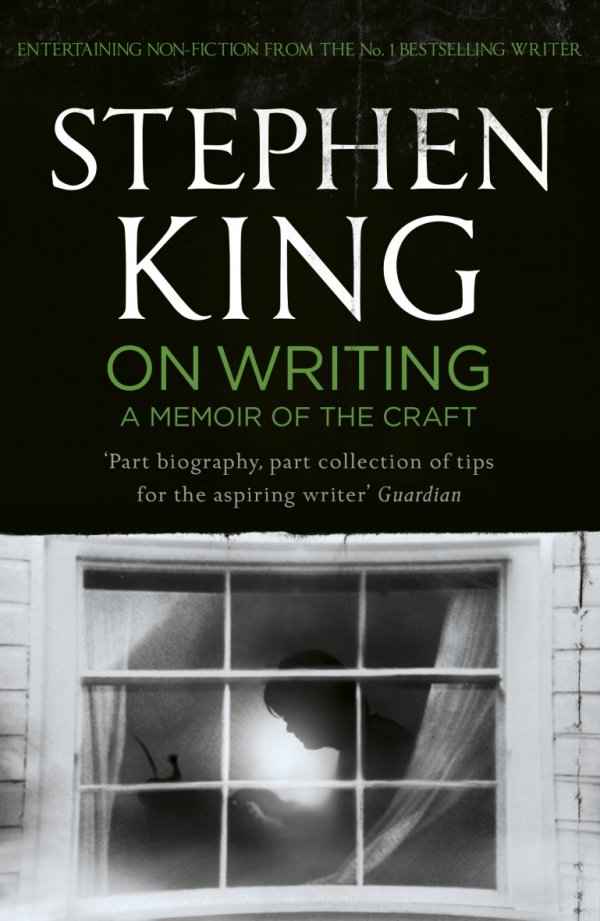
Perhaps the most-cited book on this list, On Writing is part-memoir, part-masterclass from one of America’s leading authors. Come for the vivid accounts of his childhood and youth — including his extended "lost weekend" spent on alcohol and drugs in the 1980s. Stay for the actionable advice on how to use your emotions and experiences to kickstart your writing, hone your skills, and become an author. Among the many craft-based tips are King’s expert takes on plot, story, character, and more.
From the book: “Amateurs sit and wait for inspiration, the rest of us just get up and go to work.”
2. The Kick-Ass Writer by Chuck Wendig
If you haven’t checked out Wendig’s personal blog, head over there now and bookmark it. Unfiltered, profane, and almost always right, Wendig’s become a leading voice among online writing communities in the past few years. In The Kick-Ass Writer , he offers over 1,000 pearls of wisdom for authors, ranging from express writing tips to guidance on getting published. Written to be read in short bursts, we’re sure he’d agree that this is the perfect bathroom book for writers.
From the book: “I have been writing professionally for a lucky-despite-the-number 13 years. Not once — seriously, not once ever — has anyone ever asked me where I got my writing degree… Nobody gives two ferrets fornicating in a filth-caked gym sock whether or not you have a degree… The only thing that matters is, Can you write well? ”
3. Find Your Voice by Angie Thomas
Taking advice from famous authors is not about imitation, but about finding your own voice . Take it from someone who knows: Thomas is the New York Times #1 Bestselling author of The Hate U Give , On the Come Up , and Concrete Rose . While she’s found her calling in YA literature , she has plenty of insight into finding your own voice in your genre of choice. Written in the form of a guided journal, this volume comes with step-by-step instructions, writing prompts, and exercises especially aimed at helping younger creatives develop the strength and skills to realize their vision.
From the book: “Write fearlessly. Write what is true and real to you.”
4. The Forest for the Trees by Betsy Lerner
Since its publication in 2000, The Forest for the Trees has remained an essential resource for authors at various stages in their careers. As an editor, Lerner gives advice not only on producing quality content, but also on how to build your career as an author and develop a winning routine — like how writers can be more productive in their creative process, how to get published , and how to publish well .
From the book: “The world doesn't fully make sense until the writer has secured his version of it on the page. And the act of writing is strangely more lifelike than life.”

Perfect your book with professional help
Meet the top book editors, designers, and marketers on Reedsy
Learn how Reedsy can help you craft a beautiful book.
5. How to Write Like Tolstoy by Richard Cohen
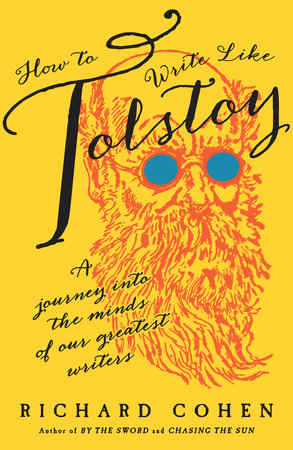
From the book: “Great writers can be inhibiting, and maybe after one has read a Scott Fitzgerald or Henry James one can’t escape imitating them; but more often such writers are inspiring.”
6. Feel Free: Essays by Zadie Smith
Smith is well-known for her fiction, but she is also a prolific essay writer. In Feel Free , she has gathered several essays on recent cultural and political developments and combined them with experiences from her own life and career. In “The I Who Is Not Me”, she explores how her own lived experience comes into play in her fiction writing, and how she manages to extrapolate that to comment on contemporary social contexts, discussing race, class, and ethnicity.
From the book: “Writing exists (for me) at the intersection of three precarious, uncertain elements: language, the world, the self. The first is never wholly mine; the second I can only ever know in a partial sense; the third is a malleable and improvised response to the previous two.”
Books about language and style
7. dreyer’s english by benjamin dreyer.
A staple book about writing well, Dreyer’s English serves as a one-stop guide to proper English, based on the knowledge that Dreyer — a senior copy editor at Random House — has accumulated throughout his career. From punctuation to tricky homophones, passive voice, and commas, the goal of these tools should be to facilitate effective communication of ideas and thoughts. Dreyer delivers this and then some, but not without its due dosage of humor and informative examples.
From the book: “A good sentence, I find myself saying frequently, is one that the reader can follow from beginning to end, no matter how long it is, without having to double back in confusion because the writer misused or omitted a key piece of punctuation, chose a vague or misleading pronoun, or in some other way engaged in inadvertent misdirection.”
8. The Elements of Style (Illustrated) by William Strunk, Jr., E. B. White, and Maira Kalman
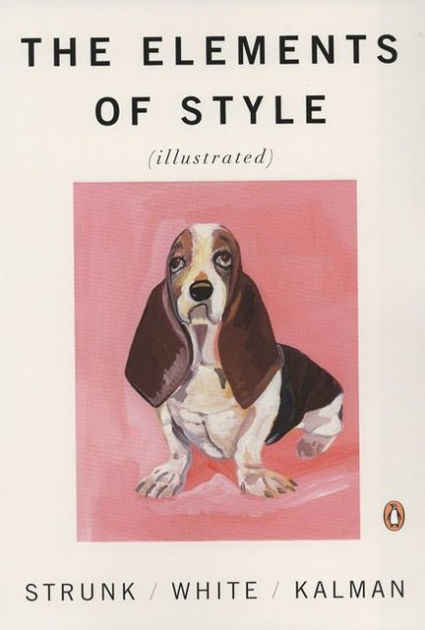
A perfect resource for visual learners, this illustrated edition of The Elements of Style has taken the classic style manual to a new, more accessible level but kept its main tenet intact: make every word tell. The written content by Strunk and White has long been referred to as an outline of the basic principles of style. Maira Kalman’s illustrations elevate the experience and make it a feast for both the mind and the eye.
From the book: “A sentence should contain no unnecessary words, a paragraph no unnecessary sentences, for the same reason that a drawing should have no unnecessary lines and a machine no unnecessary parts.”
9. Sin and Syntax by Constance Hale
If you’re looking to bring a bit of spunk into your writing, copy editor Constance Hale may hold the key . Whether you’re writing a work-related email or the next rap anthem, she has one goal: to make creative communication available to everyone by dispelling old writing myths and making every word count. Peppered with writing prompts and challenges, this book will have you itching to put pen to paper.
From the book: “Verbose is not a synonym for literary.”
10. The Sense of Style by Steven Pinker
Combining entertainment with intellectual pursuit, Pinker, a cognitive scientist and dictionary consultant, explores and rethinks language usage in the 21st century . With illustrative examples of both great and not-so-great linguistic constructions, Pinker breaks down the art of writing and gives a gentle but firm nudge in the right direction, towards coherent yet stylish prose. This is not a polemic on the decay of the English language, nor a recitation of pet peeves, but a thoughtful, challenging, and practical take on the science of communication.
From the book: “Why is so much writing so bad, and how can we make it better? Is the English language being corrupted by texting and social media? Do the kids today even care about good writing—and why should we care?”
11. Eats, Shoots, & Leaves: The Zero Tolerance Approach to Punctuation by Lynne Truss
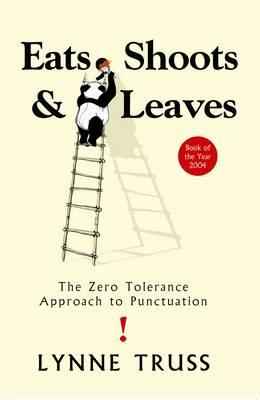
From the book: “A panda walks into a cafe. He orders a sandwich, eats it, then draws a gun and fires two shots in the air. "Why?" asks the confused waiter, as the panda makes towards the exit. The panda produces a badly punctuated wildlife annual and tosses it over his shoulder. "I'm a panda," he says, at the door. "Look it up." The waiter turns to the relevant entry and, sure enough, finds an explanation. Panda. Large black-and-white bear-like mammal, native to China. Eats, shoots and leaves.”
Books about story structure
12. save the cat by blake snyder.
Best known as a screenwriting manual, Save the Cat! is just as often named by authors as one of their most influential books about writing. The title comes from the tried-and-true trope of the protagonist doing something heroic in the first act (such as saving a cat) in order to win over the audience. Yes, it might sound trite to some — but others swear by its bulletproof beat sheet. More recently, there has been Save the Cat! Writes a Novel , which tailors its principles specifically to the literary crowd. (For a concise breakdown of the beat sheet, check this post out!)
From the book: “Because liking the person we go on a journey with is the single most important element in drawing us into the story.”
13. The Story Grid by Shawn Coyne
Shawn Coyne is a veteran editor with over 25 years of publishing experience, and he knows exactly what works and what doesn’t in a story — indeed, he’s pretty much got it down to a science. The Story Grid: What Good Editors Know outlines Coyne’s original “Story Grid” evaluation technique, which both writers and editors can use to appraise, revise, and ultimately improve their writing (in order to get it ready for publication). Coyne and his friend Tim Grahl also co-host the acclaimed Story Grid podcast , another great resource for aspiring writers.
From the book: “The Story Grid is a tool with many applications. It pinpoints problems but does not emotionally abuse the writer… it is a tool to re-envision and resuscitate a seemingly irredeemable pile of paper stuck in an attack drawer, and it can inspire an original creation.”
14. Story Structure Architect by Victoria Schmidt
For those who find the idea of improvising utterly terrifying and prefer the security of structures, this book breaks down just about every kind of story structure you’ve ever heard of. Victoria Schmidt offers no less than fifty-five different creative paths for your story to follow — some of which are more unconventional, or outright outlandish than others. The level of detail here is pretty staggering: Schmidt goes into the various conflicts, subplots, and resolutions these different story structures entail — with plenty of concrete examples! Suffice to say that no matter what kind of story you’re writing, you’ll find a blueprint for it in Story Structure Architect .
From the book: “When you grow up in a Westernized culture, the traditional plot structure becomes so embedded in your subconscious that you may have to work hard to create a plot structure that deviates from it… Understand this and keep your mind open when reading [this book]. Just because a piece doesn’t conform to the model you are used to, does not make it bad or wrong.”
15. The Writer's Journey by Christopher Vogler
Moving on, we hone in on the mythic structure. Vogler’s book, originally published in 1992, is now a modern classic of writing advice; though intended as a screenwriting textbook, its contents apply to any story of mythic proportions. In The Writer’s Journey: Mythic Structure for Writers , Vogler takes a page (literally) from Joseph Campbell’s Hero of a Thousand Faces to ruminate upon the most essential narrative structures and character archetypes of the writing craft. So if you’re thinking of drawing up an epic fantasy series full of those tropes we all know and love, this guide should be right up your alley.
From the book: “The Hero’s Journey is not an invention, but an observation. It is a recognition of a beautiful design… It’s difficult to avoid the sensation that the Hero’s Journey exists somewhere, somehow, as an external reality, a Platonic ideal form, a divine model. From this model, infinite and highly varied copies can be produced, each resonating with the essential spirit of the form.”
16. Story Genius by Lisa Cron
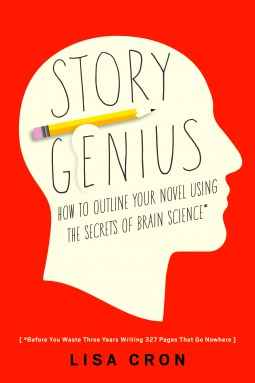
From the book: “We don't turn to story to escape reality. We turn to story to navigate reality.”

17. A Swim in a Pond in the Rain by George Saunders
More than just a New York Times bestseller and the winner of the Booker Prize, A Swim in a Pond in the Rain is a distillation of the MFA class on Russian short stories that Saunders has been teaching. Breaking down narrative functions and why we become immersed in a story, this is a must-read for anyone wanting to understand and nurture our continued need for fiction.
From the book: “We’re going to enter seven fastidiously constructed scale models of the world, made for a specific purpose that our time maybe doesn’t fully endorse but that these writers accepted implicitly as the aim of art—namely, to ask the big questions, questions like, How are we supposed to be living down here? What were we put here to accomplish? What should we value? What is truth, anyway, and how might we recognize it?”
Books about overcoming obstacles as a writer
18. bird by bird by anne lamott .
Like Stephen King’s book about writing craft, this work from acclaimed novelist and nonfiction writer Anne Lamott also fuses elements of a memoir with invaluable advice on the writer’s journey. Particularly known for popularizing the concept of “shitty first drafts”, Bird by Bird was recently recommended by editor Jennifer Hartmann in her Reedsy Live webinar for its outlook take on book writing. She said, “This book does exactly what it says it will do: it teaches you to become a better writer. [Lamott] is funny and witty and very knowledgeable.”
From the book: “Perfectionism is the voice of the oppressor, the enemy of the people. It will keep you cramped and insane your whole life, and it is the main obstacle between you and a shitty first draft.”
19. Take Off Your Pants by Libbie Hawker
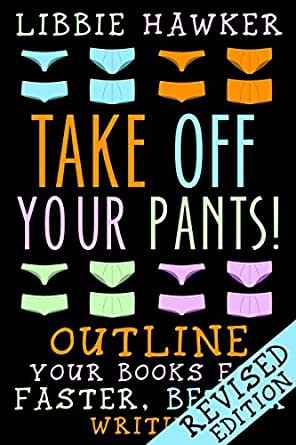
From the book: “When it comes to the eternal quandary of pantsing or plotting, you can keep a foot in each camp. But if your goals will require you to write with speed and confidence, an effective outline will be your best friend.”
20. Writing into the Dark by Dean Wesley Smith
And for those who eschew structure altogether, we’ll now refer you to this title from profile science fiction author Dean Wesley Smith . Having authored a number of official Star Trek novels, he definitely knows what he’s talking about when he encourages writers to go boldly into the unknown with an approach to writing books that doesn’t necessarily involve an elaborate plan. It might not be your action plan, but it can be a fresh perspective to get out of the occasional writer’s block .
From the book: “Imagine if every novel you picked up had a detailed outline of the entire plot… Would you read the novel after reading the outline? Chances are, no. What would be the point? You already know the journey the writer is going to take you on. So, as a writer, why do an outline and then have to spend all that time creating a book you already know?”
21. No Plot, No Problem by Chris Baty
If you’re procrastinating to the point where you haven’t even started your novel yet, NaNo founder Chris Baty is your guy! No Plot, No Problem is a “low-stress, high-velocity” guide to writing a novel in just 30 days (yup, it’s great prep for the NaNoWriMo challenge ). You’ll get tons of tips on how to survive this rigorous process, from taking advantage of your initial momentum to persisting through moments of doubt . Whether you’re participating in everyone’s favorite November write-a-thon or you just want to bang out a novel that’s been in your head forever, Baty will help you cross that elusive finish line.
From the book: “A rough draft is best written in the steam-cooker of an already busy life. If you have a million things to do, adding item number 1,000,001 is not such a big deal.”
22. The 90-Day Novel by Alan Watt
And for those who think 30 days is a bit too steam cooker-esque, there’s always Alan Watt’s more laid-back option. In The 90-Day Novel , Watt provides a unique three-part process to assist you with your writing. The first part provides assistance in developing your story’s premise, the second part helps you work through obstacles to execute it, and the third part is full of writing exercises to unlock the “primal forces” of your story — aka the energy that will invigorate your work and incite readers to devour it like popcorn at the movies.
From the book: “Why we write is as important as what we write. Grammar, punctuation, and syntax are fairly irrelevant in the first draft. Get the story down… fast. Get out of your head, so you can surprise yourself on the page.”
23. The War of Art by Steven Pressfield
If you feel like you’re constantly in the trenches of your “inner creative battle,” The War of Art is the book for you. Pressfield emphasizes the importance of breaking down creative barriers — what he calls “Resistance” — in order to defeat your demons (i.e. procrastination, self-doubt, etc.) and fulfill your potential. Though some of his opinions are no doubt controversial (he makes repeated claims that almost anything can be procrastination, including going to the doctor), this book is the perfect remedy for prevaricating writers who need a little bit of tough love.
From the book: “Most of us have two lives. The life we live, and the unlived life within us. Between the two stands Resistance.”
Free course: Create a Solid Writing Routine
Learn to banish your procrastination gremlins and finish writing your book. Get started now.
Books about writing as a lifestyle and career
24. steal like an artist by austin kleon.
As Kleon notes in the first section of Steal Like an Artist , this title obviously doesn’t refer to plagiarism. Rather, it acknowledges that art cannot be created in a vacuum, and encourages writers (and all other artists) to be open and receptive to all sources of inspiration. By “stealing like an artist,” writers can construct stories that already have a baseline of familiarity for readers, but with new twists that keep them fresh and exciting .
From the book: “If we’re free from the burden of trying to be completely original, we can stop trying to make something out of nothing, and we can embrace influence instead of running away from it.”
25. Mouth Full of Blood by Toni Morrison
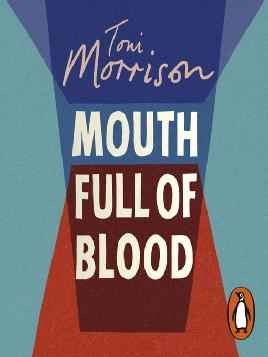
From the book: “A writer's life and work are not a gift to mankind; they are its necessity.”
26. Writing Down the Bones by Natalie Goldberg
No matter what stage you’re at in your writing career, Goldberg’s Writing Down the Bones will help you write more skillfully and creatively. With suggestions, encouragement, and valuable advice on the many aspects of the writing craft, Goldberg doesn’t shy away from making the crucial connection between writing and adding value to your life. Covering a range of topics including taking notes of your initial thoughts, listening, overcoming doubt, choosing where to write, and the selection of your verbs, this guide has plenty to say about the minute details of writing, but excels at exploring the author life.
From the book: “Write what disturbs you, what you fear, what you have not been willing to speak about. Be willing to be split open.”
27. Zen in the Art of Writing by Ray Bradbury
What does it take to become a great author? According to the beloved writer Ray Bradbury , it takes zest, gusto, curiosity, as well as a spirit of adventure. Sharing his wisdom and experiences as one of the most prolific writers in America, Bradbury gives plenty of practical tips and tricks on how to develop ideas, find your voice, and create your own style in this thoughtful volume. In addition to that, this is also an insight into the life and mind of this prolific writer, and a celebration of the act of writing.
From the book: “Every morning I jump out of bed and step on a land mine. The land mine is me. After the explosion, I spend the rest of the day putting the pieces back together. Now, it's your turn. Jump!”
28. The Kite and the String by Alice Mattison
One of the most common dilemmas an author faces is the struggle between spontaneity and control. Literary endeavors need those unexpected light-bulb moments, but a book will never be finished if you rely solely on inspiration. In The Kite and the String , Mattison has heard your cry for help and developed a guide for balancing these elements throughout the different stages of writing a novel or a memoir. Sure, there may be language and grammar rules that govern the way you write, but letting a bit of playfulness breathe life into your writing will see it take off to a whole new level. On the other hand, your writing routine, solitude, audience, and goal-setting will act as the strings that keep you from floating too far away.
From the book: "Don’t make yourself miserable wishing for a kind of success that you wouldn’t enjoy if you had it."
29. How to Become a Successful Indie Author by Craig Martelle
This one’s for all the indie authors out there! Even if you’ve already self-published a book , you can still learn a lot from this guide by Craig Martelle , who has dozens of indie books — “over two and a half million words,” as he puts it — under his belt. With patience and expertise, Martelle walks you through everything you need to know: from developing your premise to perfecting your writing routine, to finally getting your work to the top of the Amazon charts.
From the book: “No matter where you are on your author journey, there’s always a new level you can reach. Roll up your sleeves, because it’s time to get to work.”
Free course: Amazon Algorithms
Send your book to the top of its category by using Amazon's recommendation system to your advantage. Get started now.
30. How to Market a Book by Ricardo Fayet
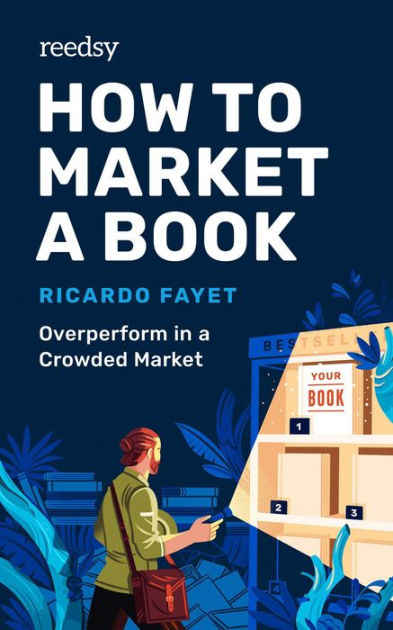
From the book: “Here’s the thing: authors don’t find readers; readers find books . [...] Marketing is not about selling your book to readers. It’s about getting readers to find it.”
31. Everybody Writes by Ann Handley
The full title of Handley’s all-inclusive book on writing is actually Everybody Writes: Your Go-To Guide to Creating Ridiculously Good Content — which should tell you something about its broad appeal. Not only does Handley have some great ideas on how to plan and produce a great story, but she also provides tips on general content writing, which comes in handy when it’s time to build your author platform or a mailing list to promote your book. As such, Everybody Writes is nothing like your other books on novel writing — it’ll make you see writing in a whole new light.
From the book: “In our world, many hold a notion that the ability to write, or write well, is a gift bestowed on a chosen few. That leaves us thinking there are two kinds of people: the writing haves — and the hapless, for whom writing well is a hopeless struggle, like trying to carve marble with a butter knife. But I don’t believe that, and neither should you.”
Free course: Author Mailing Lists
Acquire more readers, sell more books, and make more money with the only indispensable tool in the book marketer's arsenal. Get started now.
Books on writing poetry
32. madness, rack, and honey by mary ruefle.
With a long history of crafting and lecturing about poetry, Ruefle invites the reader of Madness, Rack, and Honey to immerse themselves into its beauty and magic. In a powerful combination of lectures and musings, she expertly explores the mind and craft of writers while excavating the magical potential of poetry. Often a struggle between giving and taking, poetry is, according to Ruefle, a unique art form that reveals the innermost workings of the human heart.
From the book: “In one sense, reading is a great waste of time. In another sense, it is a great extension of time, a way for one person to live a thousand and one lives in a single lifespan, to watch the great impersonal universe at work again and again”
33. Threads by Sandeep Parmar, Nisha Ramayya, and Bhanu Kapil
If you’re looking for something that explores the philosophical aspects of writing, Threads asks big questions about writing and the position of the writer in an industry that has largely excluded marginalized voices. Where does the writer exist in relation to its text and, particularly in the case of poetry, who is the “I”? Examining the common white, British, male lens, this collection of short essays will make it hard for you not to critically consider your own perceptions and how they affect your writing process.
From the book: “It is impossible to consider the lyric without fully interrogating its inherent promise of universality, its coded whiteness.”
34. The Hatred of Poetry by Ben Lerner
Despite its eye-catching title, this short essay is actually a defense of poetry . Lerner begins with his own hatred of the art form, and then moves on to explore this love-hate dichotomy that actually doesn’t seem to be contradictory. Rather, such a multitude of emotions might be one of the reasons that writers and readers alike turn to it. With its ability to evoke feelings and responses through word-play and meter, poetry has often been misconceived as inaccessible and elitist; this is a call to change that perception.
From the book: “All I ask the haters — and I, too, am one — is that they strive to perfect their contempt, even consider bringing it to bear on poems, where it will be deepened, not dispelled, and where, by creating a place for possibility and present absences (like unheard melodies), it might come to resemble love.”
35. Poemcrazy by Susan G. Wooldridge
If you’ve ever felt that the mysterious workings of poetry are out of your reach and expressly not for you, Wooldridge is here to tell you that anyone who wants to can write poetry . An experienced workshop leader, she will help you find your inner voice and to express it through the written word. Giving you advice on how to think, use your senses, and practice your writing, Wooldrige will have you putting down rhyme schemes before you know it.
From the book: “Writing a poem is a form of listening, helping me discover what's wrong or frightening in my world as well as what delights me.”
36. Writing Better Lyrics by Pat Pattison
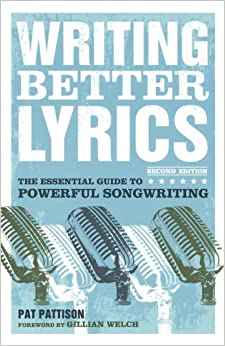
From the book: “Don't be afraid to write crap — it makes the best fertilizer. The more of it you write, the better your chances are of growing something wonderful.”
Books about writing nonfiction
37. on writing well by william zinsser.
Going strong with its 30th-anniversary edition, On Writing Well: The Classic Guide to Writing Nonfiction is an evergreen resource for nonfiction writers which breaks down the fundamental principles of written communication. As a bonus, the insights and guidelines in this book can certainly be applied to most forms of writing, from interviewing to camp-fire storytelling. Beyond giving tips on how to stay consistent in your writing and voice, how to edit, and how to avoid common pitfalls, Zinsser can also help you grow as a professional writer, strengthening your career and taking steps in a new direction.
From the book: “Don’t try to visualize the great mass audience. There is no such audience—every reader is a different person.”
38. Essays by Lydia Davis
Ironically enough, this rather lengthy book is a celebration of brevity. As one of the leading American voices in flash-fiction and short-form writing, Davis traces her literary roots and inspirations in essays on everything, ranging from the mastodonic work of Proust to minimalism. In both her translations and her own writing, she celebrates experimental writing that stretches the boundaries of language. Playing with the contrast between what is said and what is not, this collection of essays is another tool to the writing shed to help you feel and use the power of every word you write.
From the book: “Free yourself of your device, for at least certain hours of the day — or at the very least one hour. Learn to be alone, all alone, without people, and without a device that is turned on. Learn to experience the purity of that kind of concentration. Develop focus, learn to focus intently on one thing, uninterrupted, for a long time.”
39. Essayism by Brian Dillon
In this volume, Dillon explores the often overlooked genre of essay writing and its place in literature’s past, present, and future. He argues that essays are an “experiment in attention” but also highlights how and why certain essays have directly impacted the development of the cultural and political landscape, from the end of the Middle Ages until the present day. At its heart, despite its many forms, subject areas, and purposes, essayism has its root in self-exploration. Dip in and out of Dillon’s short texts to find inspiration for your own nonfiction writing.
From the book: “What exactly do I mean, even, by 'style'? Perhaps it is nothing but an urge, an aspiration, a clumsy access of admiration, a crush.”
40. Naked, Drunk, and Writing by Adair Lara
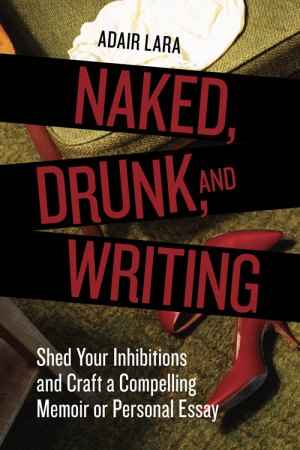
From the book: “Write it down. Whatever it is, write it down. Chip it into marble. Type it into Microsoft Word. Spell it out in seaweeds on the shore. We are each of us an endangered species, delicate as unicorns.”
With a few of these books in your arsenal, you’ll be penning perfect plots in no time! And if you’re interested in learning more about the editing process, check these books on editing out as well!
ZUrlocker says:
11/03/2019 – 19:46
I'm familiar with several of these books. But for new authors, I urge you caution. It is very tempting to read so many books about writing that you never get around to writing. (I did this successfully for many years!) So I will suggest paring it down to just two books: Stephen King on Writing and Blake Snyder Save the Cat. Snyder's book is mostly about screenwriting, so you could also consider Save the Cat Writes a Novel by Jessica Brody. Best of luck!
Comments are currently closed.
Continue reading
Recommended posts from the Reedsy Blog

What is the Climax of a Story? Examples & Tips
The climax is perhaps a story's most crucial moment, but many writers struggle to stick the landing. Let's see what makes for a great story climax.

What is Tone in Literature? Definition & Examples
We show you, with supporting examples, how tone in literature influences readers' emotions and perceptions of a text.

Writing Cozy Mysteries: 7 Essential Tips & Tropes
We show you how to write a compelling cozy mystery with advice from published authors and supporting examples from literature.

Man vs Nature: The Most Compelling Conflict in Writing
What is man vs nature? Learn all about this timeless conflict with examples of man vs nature in books, television, and film.

The Redemption Arc: Definition, Examples, and Writing Tips
Learn what it takes to redeem a character with these examples and writing tips.

How Many Sentences Are in a Paragraph?
From fiction to nonfiction works, the length of a paragraph varies depending on its purpose. Here's everything you need to know.
Join a community of over 1 million authors
Reedsy is more than just a blog. Become a member today to discover how we can help you publish a beautiful book.
Bring your stories to life
Our free writing app lets you set writing goals and track your progress, so you can finally write that book!

1 million authors trust the professionals on Reedsy. Come meet them.
Enter your email or get started with a social account:

- Writing, Research & Publishing Guides
Buy new: .savingPriceOverride { color:#CC0C39!important; font-weight: 300!important; } .reinventMobileHeaderPrice { font-weight: 400; } #apex_offerDisplay_mobile_feature_div .reinventPriceSavingsPercentageMargin, #apex_offerDisplay_mobile_feature_div .reinventPricePriceToPayMargin { margin-right: 4px; } -28% $20.00 $ 20 . 00 FREE delivery June 5 - 7 Ships from: Diagon Alley Book Store Sold by: Diagon Alley Book Store
Save with used - good .savingpriceoverride { color:#cc0c39important; font-weight: 300important; } .reinventmobileheaderprice { font-weight: 400; } #apex_offerdisplay_mobile_feature_div .reinventpricesavingspercentagemargin, #apex_offerdisplay_mobile_feature_div .reinventpricepricetopaymargin { margin-right: 4px; } $10.22 $ 10 . 22 free delivery june 17 - july 3 ships from: reuseaworld sold by: reuseaworld.

Download the free Kindle app and start reading Kindle books instantly on your smartphone, tablet, or computer - no Kindle device required .
Read instantly on your browser with Kindle for Web.
Using your mobile phone camera - scan the code below and download the Kindle app.

Image Unavailable

- To view this video download Flash Player
Follow the author

The Creative Writing Coursebook: Forty Authors Share Advice and Exercises for Fiction and Poetry Paperback – August 1, 2001
There is a newer edition of this item:.

Purchase options and add-ons
- Print length 416 pages
- Language English
- Publisher Macmillan UK
- Publication date August 1, 2001
- Dimensions 5.8 x 1.3 x 8.3 inches
- ISBN-10 0333782259
- ISBN-13 978-0333782255
- See all details

Frequently bought together
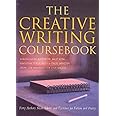
Similar items that may deliver to you quickly
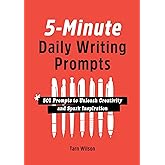
Editorial Reviews
About the author, product details.
- Publisher : Macmillan UK; First Edition (August 1, 2001)
- Language : English
- Paperback : 416 pages
- ISBN-10 : 0333782259
- ISBN-13 : 978-0333782255
- Item Weight : 1.04 pounds
- Dimensions : 5.8 x 1.3 x 8.3 inches
- #943 in Catalogs & Directories (Books)
- #4,364 in Fiction Writing Reference (Books)
- #626,646 in Literature & Fiction (Books)
About the author
Discover more of the author’s books, see similar authors, read author blogs and more
Customer reviews
Customer Reviews, including Product Star Ratings help customers to learn more about the product and decide whether it is the right product for them.
To calculate the overall star rating and percentage breakdown by star, we don’t use a simple average. Instead, our system considers things like how recent a review is and if the reviewer bought the item on Amazon. It also analyzed reviews to verify trustworthiness.
- Sort reviews by Top reviews Most recent Top reviews
Top reviews from the United States
There was a problem filtering reviews right now. please try again later..
Top reviews from other countries
- Amazon Newsletter
- About Amazon
- Accessibility
- Sustainability
- Press Center
- Investor Relations
- Amazon Devices
- Amazon Science
- Sell on Amazon
- Sell apps on Amazon
- Supply to Amazon
- Protect & Build Your Brand
- Become an Affiliate
- Become a Delivery Driver
- Start a Package Delivery Business
- Advertise Your Products
- Self-Publish with Us
- Become an Amazon Hub Partner
- › See More Ways to Make Money
- Amazon Visa
- Amazon Store Card
- Amazon Secured Card
- Amazon Business Card
- Shop with Points
- Credit Card Marketplace
- Reload Your Balance
- Amazon Currency Converter
- Your Account
- Your Orders
- Shipping Rates & Policies
- Amazon Prime
- Returns & Replacements
- Manage Your Content and Devices
- Recalls and Product Safety Alerts
- Conditions of Use
- Privacy Notice
- Consumer Health Data Privacy Disclosure
- Your Ads Privacy Choices

The 12 Best Books on Writing I’ve Ever Read
Regardless how many books I’ve written (over 200) and sold (over 70 million), I fear if I’m not learning, I’m stagnating.
My late mother was a convincing example of one who never believed she had arrived. Mom was not only a piano teacher well into her eighties, but she was also a piano student.
So it’s the memory of my mother that spurs me also to keep reading everything there is to read—especially about writing.
The books below (in alpha order by author) represent a fraction of those available. You could read one per day for the rest of your life and not exhaust the resources . But, in my opinion, these are the best books on writing available.
Some require wearing your big kid pants due to language, which I have noted.
- 12 Books Every Aspiring Author Should Read
1. The Writing Life: Writers on How They Think and Work
By Marie Arana
This book came from ten years of Ms. Arana’s Washington Post Book World column. More than fifty fiction and nonfiction authors share how they discovered they were writers and how they work. I was fascinated by what pleases and annoys them. Arana also profiles each writer.
Click here to get the book .
2. Plot & Structure: Techniques and Exercises for Crafting a Plot that Grips Readers from Start to Finish
By James Scott Bell (friend and colleague)
Anything but a dry textbook, this breezy guide is from a former trial lawyer who keeps you entertained while covering basics like how plot impacts structure, the difference between popular and literary fiction, and how to serve as your own book doctor.
3. Getting into Character: Seven Secrets a Novelist Can Learn from Actors
By Brandilyn Collins (friend and colleague)
Calling on her theater training, Collins teaches bringing characters to life the way actors do on stage. She draws on the Method Acting approach to explain and adapt characterization techniques for novelists.
4. The Writing Life
By Annie Dillard
Dillard’s hauntingly ethereal prose soars even when she’s writing about writing. That’s rare. I resonate with her honesty about how grueling the craft can be. This is one of the best books on writing available.
5. On Writing: A Memoir of the Craft [language]
By Stephen King (acquaintance)
At the risk of hyperbole , there’s so much to recommend here that I hardly know where to begin. Besides all the practical advice, you get King’s own rags-to-riches story in his inimitable voice. You learn a ton while being wildly entertained.
6. How to Write Bestselling Fiction [mild language]
By Dean Koontz
I’m not overstating it that this book changed my life. It informed the way I wrote the Left Behind series, which has sold more than 60 million copies and still sells six figures every year, nearly a decade since the last title was released. I use this as a textbook when I teach writing.
7. Bird by Bird: Some Instructions on Writing and Life [language]
By Anne Lamott
Lamott has you howling with laughter one minute and weeping the next as she recounts, with brutal honesty, the joys and travails of the writing life, single parenting, overcoming addiction, and coming to faith.
8. Writing the Breakout Novel: Insider Advice for Taking Your Fiction to the Next Level
By Donald Maass
An agent challenges you to do more than just spin a yarn, but to also think “big concept,” tackle major themes, and write life-changing works.
9. Stein On Writing: A Master Editor of Some of the Most Successful Writers of Our Century Shares His Craft Techniques and Strategies
By Sol Stein (acquaintance)
Novelist, editor, publisher (Stein & Day), and writing teacher, Stein is one of the deans of the American literary scene. His career spans decades, and he shares insider stories of famous novelists and their work, as well as everything he learned along the way. I sat under his teaching years ago and still follow his advice.
10. On Writing Well: An Informal Guide to Writing Nonfiction
By William Zinsser
Zinsser’s background should not be missed. He was a graceful classicist as a writer, and this million-seller has been lauded for its warmth and clarity. Zinsser offers sound tips on the fundamentals of writing any kind of nonfiction you can think of.
Now, don’t read any of those books for writers, until…
…you’ve read the bible of writing books:
11. The Elements of Style
By William Strunk Jr. and E.B. White
Failing to start your reading on writing with anything other than this undisputed classic would be akin to reading the top ten Christian classics while ignoring the Bible. This short paperback is recommended by every writing teacher I know. I’ve read it at least once a year for more than 40 years. Its simple truths cover everything from style and grammar and usage. Make them second nature.
12. Hooked: Write Fiction That Grabs Readers at Page One & Never Lets Them Go
By Les Edgerton
Les is one of the most powerfully edgy writers in the business, and you must have your big kid pants on to read his novels. But any writer will benefit from this great resource.
Packed with helpful, practical advice, it carries his blunt tone (but nothing offensive). I refer to it regularly.
If you’ve read none of the other books on this list, start with Stephen King’s On Writing . A short course in mistakes to avoid while writing, it will remind you why you wanted to be an author . Then, especially if you want to be a novelist, read Dean Koontz’s How to Write Bestselling Fiction .
You could learn more in just those two books than in an entire college writing course.
BONUS: Before investing in one of these, download my free guide: How to Write a Book: Everything You Need to Know in 20 Steps .

Are You Making This #1 Amateur Writing Mistake?

Faith-Based Words and Phrases

What You and I Can Learn From Patricia Raybon

Before you go, be sure to grab my FREE guide:
How to Write a Book: Everything You Need to Know in 20 Steps
Just tell me where to send it:
Enter your name and email to instantly access How to Write a Book: Everything You Need to Know in 20 Steps
Jump to navigation Skip to content
Search form
- P&W on Facebook
- P&W on Twitter
- P&W on Instagram
Find details about every creative writing competition—including poetry contests, short story competitions, essay contests, awards for novels, grants for translators, and more—that we’ve published in the Grants & Awards section of Poets & Writers Magazine during the past year. We carefully review the practices and policies of each contest before including it in the Writing Contests database, the most trusted resource for legitimate writing contests available anywhere.
Find a home for your poems, stories, essays, and reviews by researching the publications vetted by our editorial staff. In the Literary Magazines database you’ll find editorial policies, submission guidelines, contact information—everything you need to know before submitting your work to the publications that share your vision for your work.
Whether you’re pursuing the publication of your first book or your fifth, use the Small Presses database to research potential publishers, including submission guidelines, tips from the editors, contact information, and more.
Research more than one hundred agents who represent poets, fiction writers, and creative nonfiction writers, plus details about the kinds of books they’re interested in representing, their clients, and the best way to contact them.
Every week a new publishing professional shares advice, anecdotes, insights, and new ways of thinking about writing and the business of books.
Find publishers ready to read your work now with our Open Reading Periods page, a continually updated resource listing all the literary magazines and small presses currently open for submissions.
Since our founding in 1970, Poets & Writers has served as an information clearinghouse of all matters related to writing. While the range of inquiries has been broad, common themes have emerged over time. Our Top Topics for Writers addresses the most popular and pressing issues, including literary agents, copyright, MFA programs, and self-publishing.
Our series of subject-based handbooks (PDF format; $4.99 each) provide information and advice from authors, literary agents, editors, and publishers. Now available: The Poets & Writers Guide to Publicity and Promotion, The Poets & Writers Guide to the Book Deal, The Poets & Writers Guide to Literary Agents, The Poets & Writers Guide to MFA Programs, and The Poets & Writers Guide to Writing Contests.
Find a home for your work by consulting our searchable databases of writing contests, literary magazines, small presses, literary agents, and more.

Poets & Writers lists readings, workshops, and other literary events held in cities across the country. Whether you are an author on book tour or the curator of a reading series, the Literary Events Calendar can help you find your audience.
Get the Word Out is a new publicity incubator for debut fiction writers and poets.
Research newspapers, magazines, websites, and other publications that consistently publish book reviews using the Review Outlets database, which includes information about publishing schedules, submission guidelines, fees, and more.
Well over ten thousand poets and writers maintain listings in this essential resource for writers interested in connecting with their peers, as well as editors, agents, and reading series coordinators looking for authors. Apply today to join the growing community of writers who stay in touch and informed using the Poets & Writers Directory.
Let the world know about your work by posting your events on our literary events calendar, apply to be included in our directory of writers, and more.

Find a writers group to join or create your own with Poets & Writers Groups. Everything you need to connect, communicate, and collaborate with other poets and writers—all in one place.
Find information about more than two hundred full- and low-residency programs in creative writing in our MFA Programs database, which includes details about deadlines, funding, class size, core faculty, and more. Also included is information about more than fifty MA and PhD programs.
Whether you are looking to meet up with fellow writers, agents, and editors, or trying to find the perfect environment to fuel your writing practice, the Conferences & Residencies is the essential resource for information about well over three hundred writing conferences, writers residencies, and literary festivals around the world.
Discover historical sites, independent bookstores, literary archives, writing centers, and writers spaces in cities across the country using the Literary Places database—the best starting point for any literary journey, whether it’s for research or inspiration.
Search for jobs in education, publishing, the arts, and more within our free, frequently updated job listings for writers and poets.
Establish new connections and enjoy the company of your peers using our searchable databases of MFA programs and writers retreats, apply to be included in our directory of writers, and more.

- Register for Classes
Each year the Readings & Workshops program provides support to hundreds of writers participating in literary readings and conducting writing workshops. Learn more about this program, our special events, projects, and supporters, and how to contact us.
The Maureen Egen Writers Exchange Award introduces emerging writers to the New York City literary community, providing them with a network for professional advancement.
Find information about how Poets & Writers provides support to hundreds of writers participating in literary readings and conducting writing workshops.

Bring the literary world to your door—at half the newsstand price. Available in print and digital editions, Poets & Writers Magazine is a must-have for writers who are serious about their craft.
View the contents and read select essays, articles, interviews, and profiles from the current issue of the award-winning Poets & Writers Magazine .
Read essays, articles, interviews, profiles, and other select content from Poets & Writers Magazine as well as Online Exclusives.
View the covers and contents of every issue of Poets & Writers Magazine , from the current edition all the way back to the first black-and-white issue in 1987.
Every day the editors of Poets & Writers Magazine scan the headlines—publishing reports, literary dispatches, academic announcements, and more—for all the news that creative writers need to know.
In our weekly series of craft essays, some of the best and brightest minds in contemporary literature explore their craft in compact form, articulating their thoughts about creative obsessions and curiosities in a working notebook of lessons about the art of writing.
The Time Is Now offers weekly writing prompts in poetry, fiction, and creative nonfiction to help you stay committed to your writing practice throughout the year. Sign up to get The Time Is Now, as well as a weekly book recommendation for guidance and inspiration, delivered to your inbox.
Every week a new author shares books, art, music, writing prompts, films—anything and everything—that has inspired and shaped the creative process.
Listen to original audio recordings of authors featured in Poets & Writers Magazine . Browse the archive of more than 400 author readings.
Ads in Poets & Writers Magazine and on pw.org are the best ways to reach a readership of serious poets and literary prose writers. Our audience trusts our editorial content and looks to it, and to relevant advertising, for information and guidance.
Start, renew, or give a subscription to Poets & Writers Magazine ; change your address; check your account; pay your bill; report a missed issue; contact us.
Peruse paid listings of writing contests, conferences, workshops, editing services, calls for submissions, and more.
Poets & Writers is pleased to provide free subscriptions to Poets & Writers Magazine to award-winning young writers and to high school creative writing teachers for use in their classrooms.
Read select articles from the award-winning magazine and consult the most comprehensive listing of literary grants and awards, deadlines, and prizewinners available in print.

- Subscribe Now
Creative Nonfiction: Researching and Crafting Stories of Real Life, Revised Edition
- Printable Version
- Log in to Send
- Log in to Save

In this practical guidebook, Philip Gerard, author and founder of the University of North Carolina Wilmington’s MFA program in creative writing, walks through the genre of creative nonfiction—how it came to be defined and what it takes to craft a compelling, true story. Gerard combines journalistic skills with the art of storytelling in the eleven chapters covering subjects such as research, interviewing, mystery and structure, law and ethics, and revision. Writers will learn the challenges and steps to mastering the craft of creative nonfiction with Gerard’s generous instruction and advice. “The hardest part of writing creative nonfiction is that you’re stuck with what really happened—you can’t make it up,” writes Gerard. “You can be as artful as you want in the presentation, draw profound meanings out of your subject matter, but you are stuck with real people and real events. You’re stuck with stories that don’t always turn out the way you wish they had turned out.”
More Best Books for Writers
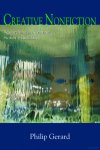
- Childrens Books
- Low Content Books
- Publishing Tools and Software

Must Read List: Top 25 Best Books for Aspiring Writers
Written By Garry | Writing | 0 Comments
Looking to excel as writer or an editor or self-publisher?
There is one essential practice that you must follow: immerse yourself in good books!
Reading widely and deeply is crucial to understanding what makes a "good book" and how to create one.
Whether you're drawn to fiction or nonfiction, history or humor, it's important to read widely within your chosen genre, as well as outside of it.
This will help you develop a keen sense of what works and what doesn't...
...and how to apply those lessons to your own work.
In addition to reading, it's also important to learn from the experts, about the craft of "building a book"...
There are many books that offer guidance on the craft of writing, from the basics of grammar and style to the nuances of character development and plot construction.
And for those looking to make a career out of writing, there are books on how to find work, how to pitch your ideas, and how to make a living as a writer.
Below are some of the best books on writing and publishing.
No matter if you're just starting out...
...or you're a seasoned pro, these books will help you take your writing and publishing to the next level.
List of the Top 25 Best Books for Aspiring Writers to Read
The Chicago Manual of Style
by The University of Chicago Press Editorial Staff
This comprehensive guide to writing and publishing is considered the industry standard. It covers everything from grammar and punctuation to manuscript preparation and citation style.
On Writing: A Memoir of the Craft
by Stephen King
Stephen King's memoir on writing is a must-read for any aspiring writer. In it, he shares his personal experiences and practical advice on everything from character development to plotting.
The Elements of Style
by William Strunk Jr. and E.B. White
This classic guide to English grammar and style is a quick and easy reference for anyone looking to improve their writing.
The Art of Fiction: Notes on Craft for Young Writers
by John Gardner
John Gardner's book on the art of fiction is a great resource for anyone looking to improve their storytelling abilities. It covers everything from character development to narrative structure.
The Forest for the Trees: An Editor's Advice to Writers
by Betsy Lerner
This book provides valuable insights into the editorial process and offers practical advice on how to work with editors and agents to get your work published.
Bird by Bird: Some Instructions on Writing and Life
by Anne Lamott
Anne Lamott's guide to writing is a must-read for anyone looking to improve their craft. It covers everything from the importance of first drafts to the value of perseverance.
The War of Art: Break Through the Blocks and Win Your Inner Creative Battles
by Steven Pressfield
Steven Pressfield's book is a great resource for anyone struggling with writer's block or other creative challenges. It offers practical advice and encouragement for overcoming creative obstacles.
Zen in the Art of Writing: Essays on Creativity
by Ray Bradbury
Ray Bradbury's book on the art of writing is a great resource for anyone looking to tap into their creative potential. It offers practical advice and inspiration for cultivating creativity.
The Creative Habit: Learn It and Use It for Life
by Twyla Tharp
Twyla Tharp's book on the creative habit is a great resource for anyone looking to develop a sustainable creative practice. It offers practical advice and exercises for cultivating creativity and staying inspired.
The Sense of Style: The Thinking Person's Guide to Writing in the 21st Century
by Steven Pinker
Steven Pinker's guide to writing is a great resource for anyone looking to improve their writing skills. It covers everything from grammar and style to the use of language in the digital age.
The Anatomy of Story: 22 Steps to Becoming a Master Storyteller
by John Truby
John Truby's book on storytelling is a great resource for anyone looking to craft compelling narratives. It covers everything from character development to the use of theme and symbolism.
Save the Cat! The Last Book on Screenwriting You'll Ever Need
by Blake Snyder
Blake Snyder's book on screenwriting is a must-read for anyone looking to write for film or television. It covers everything from structure and pacing to character development and dialogue.
Writing Down the Bones: Freeing the Writer Within
by Natalie Goldberg
Natalie Goldberg's book on writing is a great resource for anyone looking to tap into their creativity. It offers practical advice and exercises for overcoming self-doubt and finding your voice.
Story: Substance, Structure, Style, and the Principles of Screenwriting
by Robert McKee
Robert McKee's book on screenwriting is a great resource for anyone looking to learn the principles of storytelling. It covers everything from character development to the use of dialogue and conflict.
The Hero with a Thousand Faces
by Joseph Campbell
Joseph Campbell's classic book on mythology and storytelling is a great resource for anyone looking to understand the archetypal patterns that underlie many of our most enduring stories.
The Writing Life
by Annie Dillard
Annie Dillard's book on the writing life is a great resource for anyone looking to understand the creative process. It offers insights and reflections on the joys and challenges of writing.
The Elements of Eloquence: How to Turn the Perfect English Phrase
by Mark Forsyth
Mark Forsyth's book on the art of rhetoric is a great resource for anyone looking to improve their writing style. It covers everything from metaphor and alliteration to hyperbole and puns.
Reading Like a Writer: A Guide for People Who Love Books and for Those Who Want to Write Them
by Francine Prose
Francine Prose's book on reading and writing is a great resource for anyone looking to understand the craft of writing. It offers practical advice and exercises for improving your writing skills.
The Art of Memoir
by Mary Karr
Mary Karr's book on memoir writing is a great resource for anyone looking to write about their own life experiences. It covers everything from structure and pacing to the use of dialogue and description.
Writing Tools: 55 Essential Strategies for Every Writer
by Roy Peter Clark
Roy Peter Clark's book on writing is a great resource for anyone looking to improve their writing skills. It offers practical advice and exercises for everything from sentence structure to story structure.
The Artist's Way: A Spiritual Path to Higher Creativity
by Julia Cameron
Julia Cameron's book on creativity is a great resource for anyone looking to tap into their creative potential. It offers practical advice and exercises for overcoming creative blocks and staying inspired.
Becoming a Writer
by Dorothea Brande
Dorothea Brande's book on writing is a great resource for anyone looking to improve their writing skills. It covers everything from the importance of practice to the value of discipline and dedication.
The Paris Review Interviews, Vol. 1- 4
edited by The Paris Review
This features a collection of interviews with some of the greatest writers of the 20th century, including Ernest Hemingway, T.S. Eliot, and William Faulkner. It offers valuable insights into the creative process and the craft of writing.
Self-Editing for Fiction Writers: How to Edit Yourself Into Print
by Renni Browne and Dave King
Renni Browne and Dave King's book on self-editing is a great resource for anyone looking to improve their editing skills. It covers everything from dialogue and point of view to pacing and plot.
The Business of Being a Writer
by Jane Friedman
Jane Friedman's book on the business of writing is a great resource for anyone looking to make a living as a writer. It covers everything from finding work to negotiating contracts to building a platform.
Whether you're an aspiring writer, editor, or self-publisher, these books offer valuable insights and practical advice for taking your craft to the next level.
From grammar and style to storytelling and creativity, these books cover everything you need to know to succeed in the competitive world of writing and publishing.
But now let's break it down into categories:
List of the Top 10-15 Books for Aspiring Writers
As an aspiring writer, reading is an essential part of developing your writing skills and style.
Exposure to a variety of writing styles and genres can inspire and inform your own writing, and reading can also help you to understand the publishing industry and market trends.
This post has the list of the best books for aspiring writers, including memoirs of the craft, books on story structure and character development, guides to the elements of style, and books on practical advice and overcoming writer's block.
Each book will be briefly described and its importance to a writer's development will be discussed.
- "On Writing: A Memoir of the Craft" by Stephen King - This classic guide to the craft of writing is part memoir, part how-to manual, and is essential reading for aspiring writers. King shares his personal story of how he became a writer, as well as his advice on the craft, including tips on plot, character, and dialogue. This book is a go-to guide for any writer, whether you're just starting out or have been writing for years.
- "The Elements of Style" by William Strunk Jr. and E.B. White - This short book is a comprehensive guide to the rules of grammar and style in the English language. It covers everything from punctuation to usage, and is an essential resource for any writer looking to improve their writing skills.
- "The War of Art" by Steven Pressfield - This short, punchy book is a must-read for anyone struggling with writer's block or inner creative battles. Pressfield offers practical advice on how to overcome resistance and get to work, and his no-nonsense approach is both inspiring and motivating.
- "Bird by Bird" by Anne Lamott - Lamott's witty tone and personal anecdotes make this book an enjoyable read, but it's also packed with practical advice for aspiring writers. Lamott offers tips on everything from character development to finding your voice, and her focus on the writing process rather than the end result is refreshing.
- "The Creative Habit" by Twyla Tharp - Tharp's book on creativity is a great resource for anyone looking to tap into their creative potential. It offers practical advice and exercises for overcoming creative blocks and staying inspired, and Tharp's emphasis on the importance of routine and discipline is especially useful for aspiring writers.
- "The Sense of Style" by Steven Pinker - Pinker's book on the art of writing is a great resource for anyone looking to improve their writing style. It covers everything from the use of metaphor and alliteration to the value of clarity and simplicity, and is a valuable resource for anyone looking to write with style and flair.
- "The Anatomy of Story" by John Truby - Truby's comprehensive guide to story structure and character development is a great resource for anyone looking to write a good novel or screenplay. It covers everything from the importance of creating a strong protagonist to the role of conflict and theme in storytelling.
- "Save the Cat!" by Blake Snyder - Snyder's book on screenwriting is a must-read for anyone looking to write for film or television. It covers everything from structure and pacing to character development and dialogue, and is a valuable resource for anyone looking to break into the world of screenwriting.
- "The Hero with a Thousand Faces" by Joseph Campbell - This classic book on mythology and storytelling is a great resource for anyone looking to understand the archetypal patterns that underlie many of our most enduring stories. Campbell's exploration of the hero's journey is especially useful for writers looking to create memorable characters and compelling plots.
- "The Writing Life" by Annie Dillard - Dillard's book on the writing life offers a unique perspective on what it means to be a professional writer. She covers everything from the inner creative battles writers face to the practical aspects of writing, such as finding a quiet place to work and managing your time effectively. This book is a great resource for anyone looking to turn their writing into a career.
Each of these books is a great resource for aspiring writers, offering practical advice and insights into the creative process.
By reading and learning from these books, aspiring writers can take the first step towards becoming successful authors.
Memoirs of the Craft
Memoirs about writing can be incredibly useful for aspiring writers, providing valuable insights into the creative process and the writer's life.
Let's explore some of the best memoirs of the craft, including classic works by Stephen King and Annie Dillard, as well as newer books by emerging writers.
- "Lit" by Mary Karr - Karr's memoir about her own writing journey is both honest and inspiring. She shares her struggles with alcoholism and depression, as well as the challenges of writing a memoir. This book is a must-read for anyone looking to write about their own life experiences.
- " The Glass Castle" by Jeannette Walls - Walls' memoir about growing up in poverty is a great example of how personal narrative can be turned into compelling storytelling. This book is a great resource for anyone looking to write memoir or personal essays.
- "The Art of Memoir" by Mary Karr - Karr's guide to writing memoir is a great resource for anyone looking to tell their own life story. She covers everything from the ethics of writing about real people to the importance of structure and voice.
- "Why We Write: 20 Acclaimed Authors on How and Why They Do What They Do" edited by Meredith Maran - This collection of essays by some of today's best writers offers a unique perspective on the creative process. Each author shares their own story of why they became a writer and how they approach the craft, providing valuable insights for aspiring writers.
- "Shimmering Images: A Handy Little Guide to Writing Memoir" by Lisa Dale Norton - Norton's guide to writing memoir is a practical and inspiring resource for anyone looking to tell their own life story. She offers step-by-step guidance on everything from finding your voice to structuring your story.
Memoirs about writing offer a unique perspective on the creative process and the writer's life, and can be incredibly inspiring for aspiring writers.
Story Structure and Character Development
Understanding story structure and character development is essential for aspiring writers.
A well-crafted story with fully developed characters is much more likely to engage readers and leave a lasting impression.
We've covered a lot already, but let's continue and explore some of the best books on story structure and character development, including classic works by John Truby and Joseph Campbell, as well as newer books by emerging writers.
- "The Anatomy of Story" by John Truby - Truby's comprehensive guide to story structure and character development is a great resource for anyone looking to write a good novel or screenplay. It covers everything from the importance of creating a strong protagonist to the role of conflict and theme in storytelling. The book is a step-by-step guide that includes practical exercises to help writers apply the lessons to their own work.
- "Save the Cat!" by Blake Snyder - Snyder's book on screenwriting is a must-read for anyone looking to write for film or television. It covers everything from structure and pacing to character development and dialogue, and is a valuable resource for anyone looking to break into the world of screenwriting. The book is based on Snyder's own experience as a Hollywood screenwriter and includes practical advice on how to create a successful screenplay.
- "The Hero with a Thousand Faces" by Joseph Campbell - This classic book on mythology and storytelling is a great resource for anyone looking to understand the archetypal patterns that underlie many of our most enduring stories. Campbell's exploration of the hero's journey is especially useful for writers looking to create memorable characters and compelling plots. The book is a comprehensive guide to the elements of storytelling, and is essential reading for anyone looking to write great fiction.
- "Story Genius" by Lisa Cron - Cron's book on story structure and character development is a great resource for anyone looking to write a novel. She emphasizes the importance of creating fully developed characters with their own unique perspectives and motivations. The book includes practical exercises to help writers apply the lessons to their own work, and is a great resource for anyone looking to take their writing to the next level.
- "The Art of Character" by David Corbett - Corbett's book on character development is a great resource for anyone looking to create compelling and complex characters. He emphasizes the importance of creating characters with depth and complexity, and provides practical advice on how to achieve this. The book includes exercises to help writers create more nuanced and realistic characters, and is a valuable resource for anyone looking to improve their writing skills.
- "Creating Character Arcs" by K.M. Weiland - Weiland's book on character development focuses on the importance of creating believable and engaging character arcs. She emphasizes the importance of creating characters that change and grow throughout the story, and provides practical advice on how to achieve this. The book includes examples from popular novels and movies to illustrate the lessons, and is a great resource for anyone looking to improve their writing skills.
By reading and learning from these books, writers can take the first step towards creating compelling and engaging stories with fully developed characters.
As an aspiring writer, understanding the rules of grammar and style is essential for creating clear, concise, and effective writing.
Some of the best books are listed below on the elements of style, including the classic "The Elements of Style" by William Strunk Jr. and E.B. White, as well as newer books by emerging writers.
- "The Elements of Style" by William Strunk Jr. and E.B. White - This short book is a comprehensive guide to the rules of grammar and style in the English language. It covers everything from punctuation to usage, and is an essential resource for any writer looking to improve their writing skills. The book is concise and easy to follow, and is an excellent reference guide for writers of all levels.
- "The Sense of Style" by Steven Pinker - Pinker's book on the art of writing is a great resource for anyone looking to improve their writing style. It covers everything from the use of metaphor and alliteration to the value of clarity and simplicity, and is a valuable resource for anyone looking to write with style and flair. The book is also a great resource for anyone looking to write for a popular audience.
- "Style: The Basics of Clarity and Grace" by Joseph M. Williams - Williams' book on style is a great resource for anyone looking to improve their writing skills. He emphasizes the importance of clarity and simplicity in writing, and provides practical advice on how to achieve this. The book includes examples from popular writers to illustrate the lessons, and is a valuable resource for anyone looking to take their writing to the next level.
- "The Elements of Eloquence" by Mark Forsyth - Forsyth's book on the art of rhetoric is a great resource for anyone looking to improve their writing style. He explores the various literary techniques that writers can use to create memorable and effective writing, and provides practical advice on how to apply these techniques to your own writing. The book is both informative and entertaining, and is a great resource for writers looking to add a bit of flair to their writing.
- "The Glamour of Grammar" by Roy Peter Clark - Clark's book on grammar and style is a great resource for anyone looking to improve their writing skills. He emphasizes the importance of understanding the rules of grammar and style in order to create effective writing, and provides practical advice on how to apply these rules to your own writing. The book is both informative and entertaining, and is a great resource for writers looking to improve their writing skills.
Understanding the rules of grammar and style is essential for aspiring writers.
By reading and learning from these books, writers can take the first step towards creating clear, concise, and effective writing.
Practical Advice and Overcoming Writer's Block
Writing can be a difficult and frustrating process, and every writer experiences periods of writer's block at some point.
Now it's time to cover some of the best books on practical advice for writers...
...as well as strategies for overcoming writer's block.
These books offer valuable insights into the creative process, as well as practical tips for staying motivated and inspired.
- "The War of Art" by Steven Pressfield - This short book is a great resource for anyone struggling with writer's block or a lack of motivation. Pressfield explores the inner battles that writers face when trying to create, and provides practical advice on how to overcome these obstacles. The book is both informative and inspiring, and is a great resource for anyone looking to take their writing to the next level.
- "The Artist's Way" by Julia Cameron - Cameron's book on creativity is a great resource for anyone looking to overcome writer's block and unleash their inner creative spirit. She provides practical exercises and strategies for staying motivated and inspired, and offers a unique perspective on what it means to be a writer. The book is both informative and inspiring, and is a valuable resource for anyone looking to develop their creativity.
- "Bird by Bird" by Anne Lamott - Lamott's book on writing is a great resource for anyone looking for practical advice on the creative process. She offers tips on everything from character development to finding your voice, and provides strategies for overcoming writer's block and staying motivated. The book is both informative and entertaining, and is a valuable resource for writers of all levels.
- "Writing Down the Bones" by Natalie Goldberg - Goldberg's book on writing is a great resource for anyone looking to overcome writer's block and tap into their inner creative spirit. She provides practical exercises and strategies for staying motivated and inspired, and offers a unique perspective on what it means to be a writer. The book is both informative and inspiring, and is a valuable resource for anyone looking to develop their creativity.
- "Big Magic" by Elizabeth Gilbert - Gilbert's book on creativity is a great resource for anyone looking to overcome writer's block and unleash their inner creative spirit. She provides practical advice and strategies for staying motivated and inspired, and offers a unique perspective on what it means to be a writer. The book is both informative and inspiring, and is a valuable resource for anyone looking to develop their creativity.
- "Writing the Breakout Novel" by Donald Maass - Maass' book on writing is a great resource for anyone looking to improve their writing skills and overcome writer's block. He offers practical advice on everything from plot development to character arc, and provides strategies for staying motivated and inspired. The book is both informative and entertaining, and is a valuable resource for writers of all levels.
- "The Emotional Craft of Fiction" by Donald Maass - Maass' book on the emotional aspects of writing is a great resource for anyone looking to develop deeper and more nuanced characters. He offers practical advice on how to create fully-realized characters with depth and complexity, and provides strategies for overcoming writer's block and staying motivated. The book is both informative and inspiring, and is a valuable resource for writers looking to take their writing to the next level.
Understanding the creative process and developing strategies for overcoming writer's block is essential for aspiring writers.
By reading and learning from these books, writers can take the first step towards developing their creativity and creating compelling and engaging writing.
As an aspiring writer, editor or self-publisher, the journey to becoming successful can be a challenging one.
However, with the right tools and resources, it is possible to develop the skills needed to understand what makes compelling and engaging stories.
In this post, we have explored some of the best books for aspiring writers, editors or self-publishers, including memoirs of the craft, story structure and character development, the elements of style, and practical advice for overcoming writer's block.
Reading the books on this list can help you develop the craft needed to take writing, editing and self-publishing to the next level.
By learning from the greats who have come before us, we can gain valuable insights into the creative process and develop the skills needed to write engaging and memorable stories.
From Stephen King's classic "On Writing" to Julia Cameron's "The Artist's Way," each book offers valuable insights into the creative process and provides practical advice for aspiring writers.
Whether you're looking to develop your writing style, create fully-realized characters, or overcome writer's block, there is a book on this list that can help you achieve your goals.
Ultimately, the key to becoming a successful writer, editor, or self-publisher is to read widely, write consistently, and never give up on your dreams.
With the right tools and resources, anyone can develop the skills needed to create engaging and memorable stories, edit and refine the work of others, or self-publish their own book.
So, pick up a book, sit down at your desk, and start writing, editing, and prepare your new masterpieces to be self-published.
The world is waiting to hear your story!
Privacy Overview
- Skip to main content
- Skip to footer
Additional menu
The Creative Penn
Writing, self-publishing, book marketing, making a living with your writing
Hello, Creative.
I'm Joanna Penn, and through my books, podcast and community, I'll share my lessons learned on how to write, publish and market your book — and make a living with your writing.
I'm an award-winning, New York Times and USA Today bestselling author with more than 40 books across multiple genres, with over a million sold across 176 countries and 5 languages.
I'm a podcaster, international speaker, and award-winning creative entrepreneur.
But it hasn't always been this way!
I've made many mistakes on the author journey, and I share everything on this site so you can save time, money, and heartache on your path.
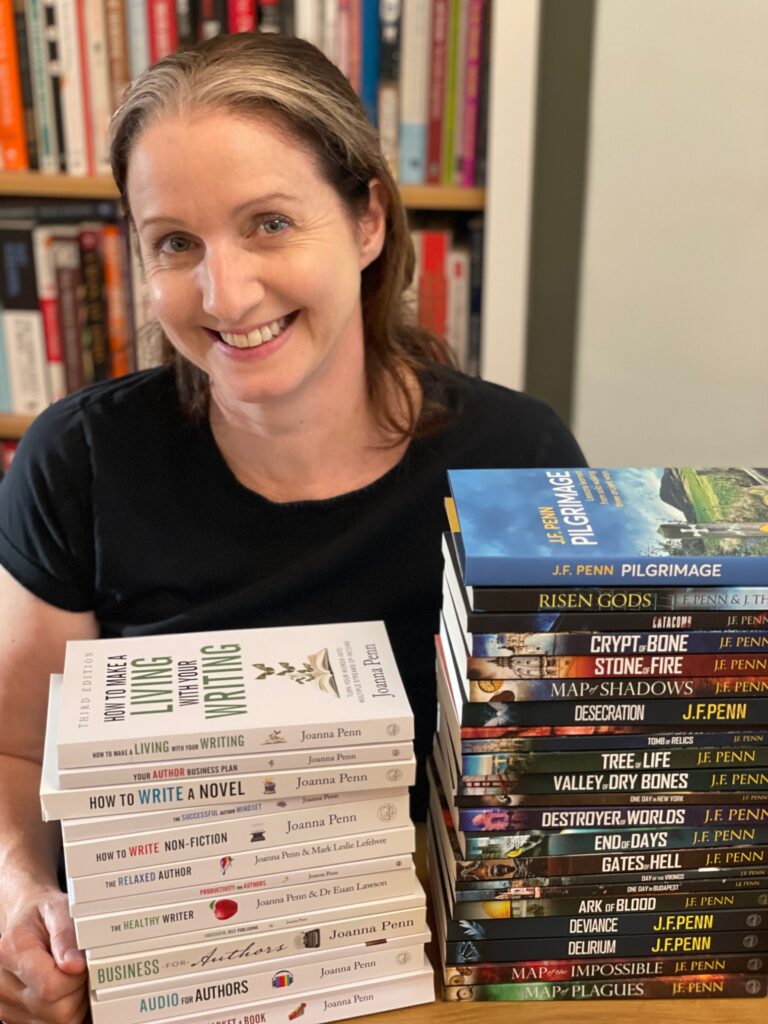
Get started right now with your free Author Blueprint
Tips and resources on writing, publishing, book marketing, and making a living with your writing.
Tools, Tutorials and Useful Resources
My list of the best writing and editing, publishing and marketing software for writers, plus in-depth tutorials on how to use them.

Listen to The Creative Penn Podcast every Monday for information and inspiration on writing, publishing, book marketing and making a living with your writing.
Subscribe in your favorite podcast app, or check out the backlist.
Check out my Books and Audiobooks for Writers
Including How to Make a Living with Your Writing , How to Market a Book , Successful Self-Publishing , How to Write Non-Fiction , and many more.
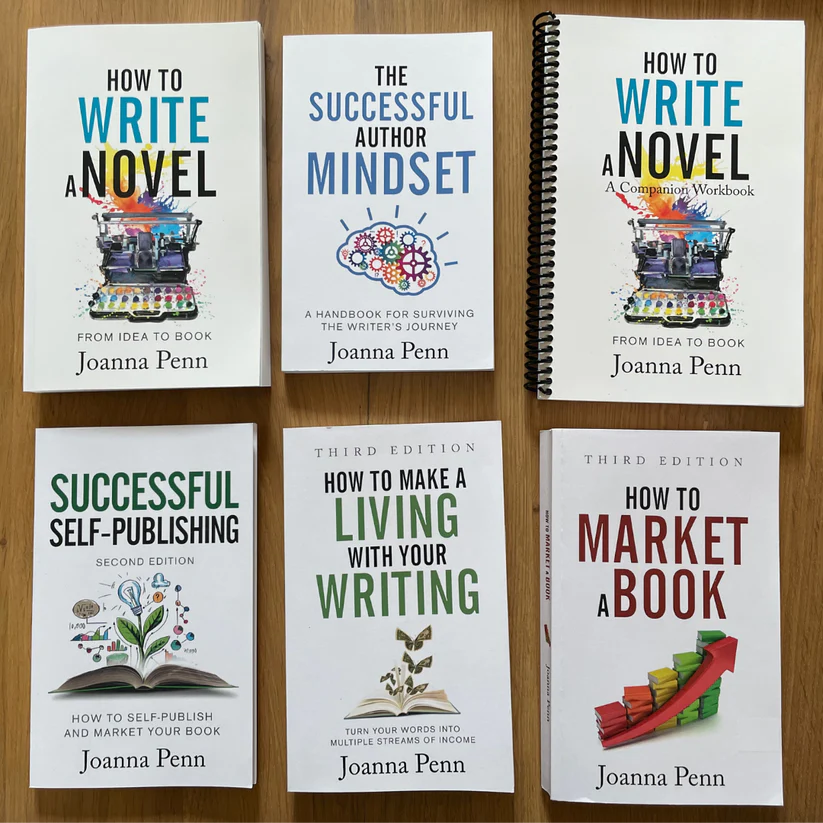
Get started right now!
This site has hundreds of articles, audio podcast episodes, videos and resources. To help you get started with the most useful content for your author journey, go straight to Start Here!
Love thrillers, dark fantasy, crime, horror, or short stories?
Check out my fiction and travel memoir as J.F. Penn
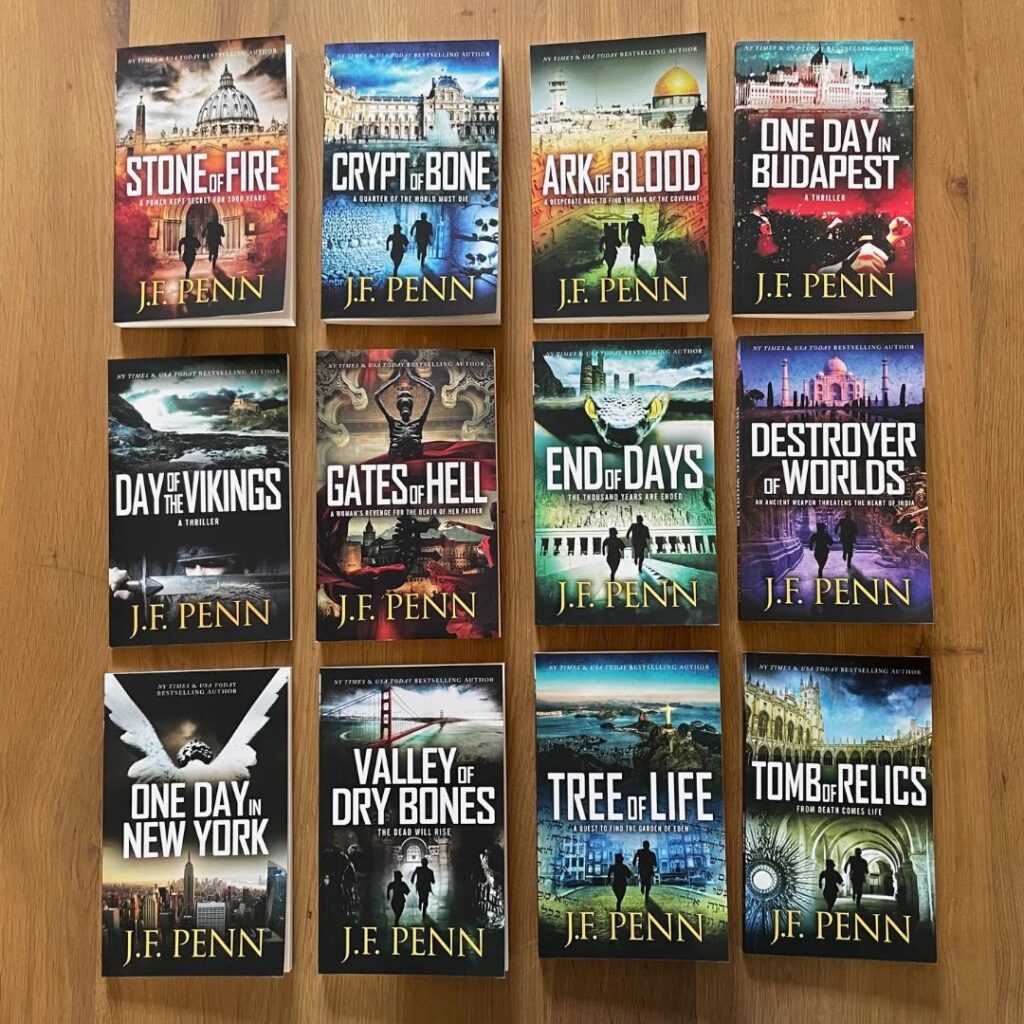
What Is Kickstarter And Why Am I Launching My Latest Thriller Spear of Destiny There?
Continue Reading What Is Kickstarter And Why Am I Launching My Latest Thriller Spear of Destiny There?
A Desperate Quest. A Holy Relic. A Race Against Time. Spear of Destiny by J.F. Penn
Continue Reading A Desperate Quest. A Holy Relic. A Race Against Time. Spear of Destiny by J.F. Penn
Plan For Success In Your Indie Author Business And TikTok Marketing With Adam Beswick
Continue Reading Plan For Success In Your Indie Author Business And TikTok Marketing With Adam Beswick

Outlining Tips And Video Marketing On YouTube With Jenna Moreci
Continue Reading Outlining Tips And Video Marketing On YouTube With Jenna Moreci
Connect with me on social media
Sign up for your free author blueprint.

Thanks for visiting The Creative Penn!
Category : Gorodok factory
Subcategories.
This category has only the following subcategory.
- Gorodok pipe bridge (7 F)
Media in category "Gorodok factory"
The following 41 files are in this category, out of 41 total.
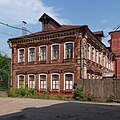
- Factories in Pavlovsky Posad
- Gorodok (Pavlovsky Posad)
- 1900s architecture in Russia
- Weaving mills in Russia
- Brick architecture in Pavlovsky Posad
- Uses of Wikidata Infobox
- Uses of Wikidata Infobox with maps
- Pages with maps
Navigation menu
IELTS Exam Preparation: Free IELTS Tips, 2024
- elektrostal'
Take IELTS test in or nearby Elektrostal'
There is no IELTS test center listed for Elektrostal' but you may be able to take your test in an alternative test center nearby. Please choose an appropriate test center that is closer to you or is most suitable for your test depending upon location or availability of test.
Closest test centers are:
Make sure to prepare for the IELTS exam using our Free IELTS practice tests .
Moscow, Russia
British council bkc-ih moscow, students international - moscow, students international - moscow cb, vladimir, vladimir oblast, russia, students international vladimir, obninsk, kaluga oblast, russia, british council bkc-ih obninsk, nizhny novgorod, nizhny novgorod oblast, russia, students international - nizhny novgorod, british council bkc-ih nizhny novgorod, voronezh, voronezh oblast, russia, british council bkc-ih voronezh, veliky novgorod, novgorod oblast, russia, lt pro - veliky novgorod, kazan, tatarstan, russia, students international - kazan, british council bkc-ih kazan, st petersburg, russia, lt pro - saint petersburg, students international - st petersburg, saratov, saratov oblast, russia, british council bkc-ih saratov, students international - saratov, petrozavodsk, republic of karelia, russia, lt pro - petrozavodsk, students international - petrozavodsk, kirov, kirov oblast, russia, students international - kirov, samara, samara oblast, russia, students international - samara, british council bkc-ih samara, volgograd, volgograd oblast, russia, students international - volgograd, british council bkc-ih volgograd, rostov-on-don, rostov oblast, russia, students international - rostov-on-don, syktyvkar, komi republic, russia, students international - syktyvkar, perm, perm krai, russia, british council bkc-ih perm, students international - perm, ufa, republic of bashkortostan, russia, students international - ufa, british council bkc-ih ufa, kaliningrad, kaliningrad oblast, russia, lt pro - kaliningrad, students international - kaliningrad, krasnodar, krasnodar krai, russia, students international - krasnodar, stavropol, stavropol krai, russia, students international - stavropol, astrakhan, astrakhan oblast, russia, students international - astrakhan, magnitogorsk, chelyabinsk oblast, russia, ru069 students international - magintogorsk, yekaterinburg, sverdlovsk oblast, russia, students international - ekaterinburg, british council bkc-ih ekaterinburg, chelyabinsk, chelyabinsk oblast, russia, students international - chelyabinsk, british council bkc-ih chelyabinsk, murmansk, murmansk oblast, russia, students international - murmansk, tyumen, tyumen oblast, russia, students international - tyumen, omsk, omsk oblast, russia, students international - omsk, novosibirsk, novosibirsk oblast, russia, british council bkc-ih novosibirsk, students international - novosibirsk, tomsk, tomsk oblast, russia, british council bkc-ih tomsk, students international - tomsk, barnaul, altai krai, russia, students international - barnaul, other locations nearby elektrostal'.
- Zheleznodorozhnyy
- Orekhovo-Zuyevo
- Sergiyev Posad
- Podol'sk
- Novo-Peredelkino
- Ryazan'
An Overview of the IELTS
The International English Language Testing System (IELTS) is designed to measure English proficiency for educational, vocational and immigration purposes. The IELTS measures an individual's ability to communicate in English across four areas of language: listening , reading , writing and speaking . The IELTS is administered jointly by the British Council, IDP: IELTS Australia and Cambridge English Language Assessment at over 1,100 test centres and 140 countries. These test centres supervise the local administration of the test and recruit, train and monitor IELTS examiners.
IELTS tests are available on 48 fixed dates each year, usually Saturdays and sometimes Thursdays, and may be offered up to four times a month at any test centre, including Elektrostal' depending on local needs. Go to IELTS test locations to find a test centre in or nearby Elektrostal' and to check for upcoming test dates at your test centre.
Test results are available online 13 days after your test date. You can either receive your Test Report Form by post or collect it from the Test Centre. You will normally only receive one copy of the Test Report Form, though you may ask for a second copy if you are applying to the UK or Canada for immigration purposes - be sure to specify this when you register for IELTS. You may ask for up to 5 copies of your Test Report Form to be sent directly to other organisations, such as universities.
There are no restrictions on re-sitting the IELTS. However, you would need to allow sufficient time to complete the registration procedures again and find a suitable test date.
SHARE THIS PAGE
The reading, writing and listening practice tests on this website have been designed to resemble the format of the IELTS test as closely as possible. They are not, however, real IELTS tests; they are designed to practise exam technique to help students to face the IELTS test with confidence and to perform to the best of their ability.
While using this site, you agree to have read and accepted our terms of use, cookie and privacy policy.

IMAGES
VIDEO
COMMENTS
Because regularly practicing your writing by going outside your current works-in-progress (or writer's block) will free you up, help you plant the seeds for new ideas, and defrost your creative blocks. And the best book writing exercise book I know is The 3 A.M. Epiphany by Brian Kiteley, an MFA professor who uses prompts like these with his ...
The professor of creative writing at UEA says Joseph Conrad got it right when he said that the sitting down is all. He chooses five books to help aspiring writers. 1 Becoming a Writer by Dorothea Brande. 2 On Becoming a Novelist by John C. Gardner. 3 On Writing: A Memoir of the Craft by Stephen King.
Peter Lovesey Author. George Wylesol Author. Keith J. Holyoak Author. Jesse Schell Author. +40. 46 authors created a book list connected to creative writing, and here are their favorite creative writing books. Shepherd is reader supported. When you buy books, we may earn an affiliate commission .
Contents. 1 20 Best Books About Creative Writing; 2 On Writing: A Memoir of the Craft; 3 Bird by Bird: Some Instructions on Writing and Life; 4 The Elements of Style; 5 Big Magic: Creative Living Beyond Fear; 6 The Writing Life; 7 Zen in the Art of Writing; 8 The Artist's Way: A Spiritual Path to Higher Creativity; 9 Writing Down the Bones: Freeing the Writer Within; 10 The War of Art: Break ...
recommended by Sophie King. The author and creative writing teacher tells us where to go for tips on finding your voice, grabbing the reader's attention and getting published. 1 Becoming a Writer by Dorothea Brande. 2 The Maeve Binchy Writers' Club by Maeve Binchy. 3 Wannabe a Writer? by Jane Wenham-Jones.
Originally published in 1994, " Art & Fear " is now an underground classic, dishing out relatable, valuable advice about what it means to create. 23. "The Sense of Style: The Thinking Person's Guide to Writing in the 21st Century" by Steven Pinker. Steven Pinker offers a new take on some of the classic writing manuals.
Written with passion, precision, and a deep respect for the art of writing, Gardner's book serves by turns as a critic, mentor, and friend. Anyone who has ever thought of taking the step from reader to writer should begin here.". 10. The Art of Memoir by Mary Karr.
Creative Writing Books: books on the craft of writing, including fiction, poetry, and creative non-fiction. flag All Votes ... Write Like the Masters: Emulating the Best of Hemingway, Faulkner, Salinger, and Others by. William Cane (Goodreads Author) 4.09 avg rating — 158 ratings.
That's where books on creative writing come in. Reading books about creative writing is a great way to broaden your knowledge and get insights into both the technical and philosophical sides of story. Plus, they can motivate, inspire and ignite your imagination. Here, I've curated a list of the best creative writing books that are sure to ...
3. Body Work by Melissa Febos. Melissa Febos has long been one of my favorite authors and essayists. Her work is raw and profoundly human. When I learned she was publishing her own book on writing, I couldn't wait to get my hands on it, knowing it would offer a fresh and intimate take on personal narrative.
We would like to show you a description here but the site won't allow us.
So for starters, here are our top 10 books about writing: On Writing by Stephen King. The Kick-Ass Writer by Chuck Wendig. Dreyer's Englis h by Benjamin Dreyer. The Elements of Style by Strunk, White, and Kalman. The Story Grid by Shawn Coyne. A Swim in a Pond in the Rain by George Saunders. Bird by Bird by Anne Lamott.
6. The Blue Book of Grammar and Punctuation by Jane Straus, Lester Kaufman, and Tom Stern. This is one of the best books on writing that should be on every writer's bookshelf. " The Blue Book " is a straightforward book that has all the rules of grammar you need to refresh on as you're writing. 7.
The 14 best creative writing books for beginners, such as Show, Don't Tell, Now Write! Nonfiction and Cengage Advantage Books.
The Creative Writing Coursebook: Forty Authors Share Advice and Exercises for Fiction and Poetry [Bell, Julia, Magrs, Paul, Motion, Andrew] on Amazon.com. *FREE* shipping on qualifying offers. The Creative Writing Coursebook: Forty Authors Share Advice and Exercises for Fiction and Poetry ... Best Sellers Rank: #2,510,180 in Books (See Top 100 ...
Best Books on Writing and Editing Historical Fiction Best Books on Writing and Editing Mystery, Suspense, Thriller, and Crime Fiction ... Zen in the Art of Writing: Releasing the Creative Genius Within You by. Ray Bradbury. 4.08 avg rating — 19,880 ratings. score: 748, and 8 people voted
5. On Writing: A Memoir of the Craft [language] By Stephen King (acquaintance) At the risk of hyperbole, there's so much to recommend here that I hardly know where to begin. Besides all the practical advice, you get King's own rags-to-riches story in his inimitable voice. You learn a ton while being wildly entertained.
Creative Writing Books to read in 2024 to broaden your knowledge in Personal Development. User verified book suggestions such as 'Eats, Shoots and Leaves' and 'Conflict and Suspense' by top notch authors like Lynne Truss and James Scott Bell.
In this practical guidebook, Philip Gerard, author and founder of the University of North Carolina Wilmington's MFA program in creative writing, walks through the genre of creative nonfiction—how it came to be defined and what it takes to craft a compelling, true story. Gerard combines journalistic skills with the art of storytelling in the eleven chapters covering subjects such as ...
The Forest for the Trees: An Editor's Advice to Writers. by Betsy Lerner. This book provides valuable insights into the editorial process and offers practical advice on how to work with editors and agents to get your work published. Bird by Bird: Some Instructions on Writing and Life. by Anne Lamott.
Check out my fiction and travel memoir as J.F. Penn. Welcome to The Creative Penn, where you will find resources to help you write, publish and market your book, as well as make a living with your writing. Lots of free articles, audio and podcast episodes, videos, tutorials and tools, as well as books and courses for writers.
Media in category "Gorodok factory" The following 41 files are in this category, out of 41 total.
Before you hire a handyman service in Elektrostal', Moscow Oblast, browse through our network of over 42 local handyman services. Read through customer reviews, check out their past projects and then request a quote from the best handyman services near you. Finding handyman services in my area is easy on Houzz.
Kwan, best known for Crazy Rich Asians, spoke about his career and newest book, Lies and Weddings. Lies and Weddings was released on May 21, 2024 and just hit the New York Times Best Sellers list.
The IELTS measures an individual's ability to communicate in English across four areas of language: listening, reading, writing and speaking. The IELTS is administered jointly by the British Council, IDP: IELTS Australia and Cambridge English Language Assessment at over 1,100 test centres and 140 countries.
Search 14 Elektrostal' kitchen & bathroom remodelers to find the best kitchen and bathroom remodeler for your project. See the top reviewed local kitchen & bathroom remodelers in Elektrostal', Moscow Oblast, Russia on Houzz.